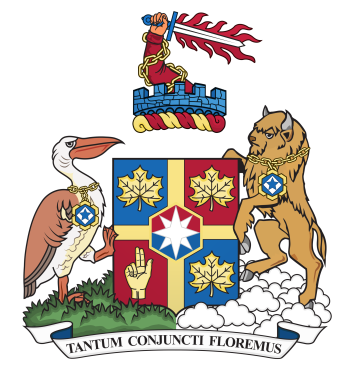Rulemaking versus Regulating
 Because the word is in the 21st century so deeply, linguistically associated to some so-called ‘brainwashing,’ ‘propaganda,’ etc., thereby ideology has become unfittingly a social pejorative. Western governments throw the word at themselves in order to lay blame, discredit character, or institutionalize coups d’état. It is an intentional insult to call someone an ‘ideological zealot,’ for example, as much among the peasants as also the partisans and the pundits. Although Eastern governments throw the word also at themselves, nonetheless their more poignant, more flamboyant insults churn altogether under so-called ‘whataboutism.’ Not only Xi and Putin, but also Modi, Chí Minh, and Pol Pot have made clear overtly through their actions (1953–2025) that ideology is seldom a word, usually a weapon, and often a doom-of-genocide [Todesurteil]. ‘Whataboutism’ does not function, except through the sinful (deceitful) exploitation of an innocent’s trust, i.e., of some personal credit and faith. The phenomenon pertains equally to the West and the East, insofar as anybody can abuse her own self-esteem in order to make a deal-with-the-devil [Teufelspakt] and to proffer that innocent in her stead. (A vampire is equally human and spiritual.) Whenever a person wants to alleviate the sins of his own morals, always he is disconcerting through the comparison that, if the audience had not considered his perspective first, his sins would be seen plainly, obviously off to their common essence, not only at his preferred magical costume. Indeed, the audience would behold the magic-trick, would witness thus suddenly the magician’s nudity, his weak ego, his weaker morals, as well as the gruesome devilish endeavors which he holds for the excuses of his deceit (and other sins).
Because the word is in the 21st century so deeply, linguistically associated to some so-called ‘brainwashing,’ ‘propaganda,’ etc., thereby ideology has become unfittingly a social pejorative. Western governments throw the word at themselves in order to lay blame, discredit character, or institutionalize coups d’état. It is an intentional insult to call someone an ‘ideological zealot,’ for example, as much among the peasants as also the partisans and the pundits. Although Eastern governments throw the word also at themselves, nonetheless their more poignant, more flamboyant insults churn altogether under so-called ‘whataboutism.’ Not only Xi and Putin, but also Modi, Chí Minh, and Pol Pot have made clear overtly through their actions (1953–2025) that ideology is seldom a word, usually a weapon, and often a doom-of-genocide [Todesurteil]. ‘Whataboutism’ does not function, except through the sinful (deceitful) exploitation of an innocent’s trust, i.e., of some personal credit and faith. The phenomenon pertains equally to the West and the East, insofar as anybody can abuse her own self-esteem in order to make a deal-with-the-devil [Teufelspakt] and to proffer that innocent in her stead. (A vampire is equally human and spiritual.) Whenever a person wants to alleviate the sins of his own morals, always he is disconcerting through the comparison that, if the audience had not considered his perspective first, his sins would be seen plainly, obviously off to their common essence, not only at his preferred magical costume. Indeed, the audience would behold the magic-trick, would witness thus suddenly the magician’s nudity, his weak ego, his weaker morals, as well as the gruesome devilish endeavors which he holds for the excuses of his deceit (and other sins).
 That is not to say that all magicians of any forms were inherently devilish, or even, that all devilish creatures were really evil. On the contrary, it emphasizes precisely that the truest monsters are never those who look ugly, but rather always those who (often involuntarily) reflect other persons’ obviously monstrous instincts. The more easily an object is blamed, the more monstrous and large the subject takes it for. As nobody wants to hear the disfavored news by a truth-telling mirror, so everybody wants to blame the messenger instead of the inquisitor. (Self-love is ever ironic.)
That is not to say that all magicians of any forms were inherently devilish, or even, that all devilish creatures were really evil. On the contrary, it emphasizes precisely that the truest monsters are never those who look ugly, but rather always those who (often involuntarily) reflect other persons’ obviously monstrous instincts. The more easily an object is blamed, the more monstrous and large the subject takes it for. As nobody wants to hear the disfavored news by a truth-telling mirror, so everybody wants to blame the messenger instead of the inquisitor. (Self-love is ever ironic.)
Ideology looks like the sociopolitical debates around the questions about humans’ resources, regulating, rulemaking, economics, accounting, etc., &c.; but such consensus would be ever true, only while all these words and their concepts could ignore immanent human instincts. That is literally self-destructive. The deeper and monstrous essence of human civilization – no matter the perspective, the æon, or the ideology – consists entirely in material history. Accounting cannot exist, but through economics; and the latter not, but through rulemaking; and so forth, until an unflat & dynamic essence beholds itself wholly. What binds human beings then inescapably to their special essence [i.e., to the human species], it is every time the ongoing confluence along their technologies and languages. [Da ist Ideologie gegenüber Historie.] The bindings are the process of whichever consequent civilízatory developments, plus are the mutual evolution into higher echelons from whichever context [ser, sein, être, vara; zivilisatorisch]. This causality is albeit not the same, as the else preferred magic-tricks of the ideologically geopolitical warmongers who exploit innocent perspectives for guilty intentions. The devil’s deals cannot collect the souls of innocents, only those of the ironically originating underwriters; but their folly escapes them somehow anyways [verpassen]. If it didn’t, perhaps the devil could not redeem humanity’s remainders; and perhaps the underworld were a spiritual rehab-center, instead of bluish brimstones or unhappy self-cannibalism [wäre, sea, vore, sois]. In either case it stays so, that no ideology overcomes history, because every ideology comprises history. Whereas history composes a person’s (usually false) ideas about her ancestors, so zero ideology can escape itself.
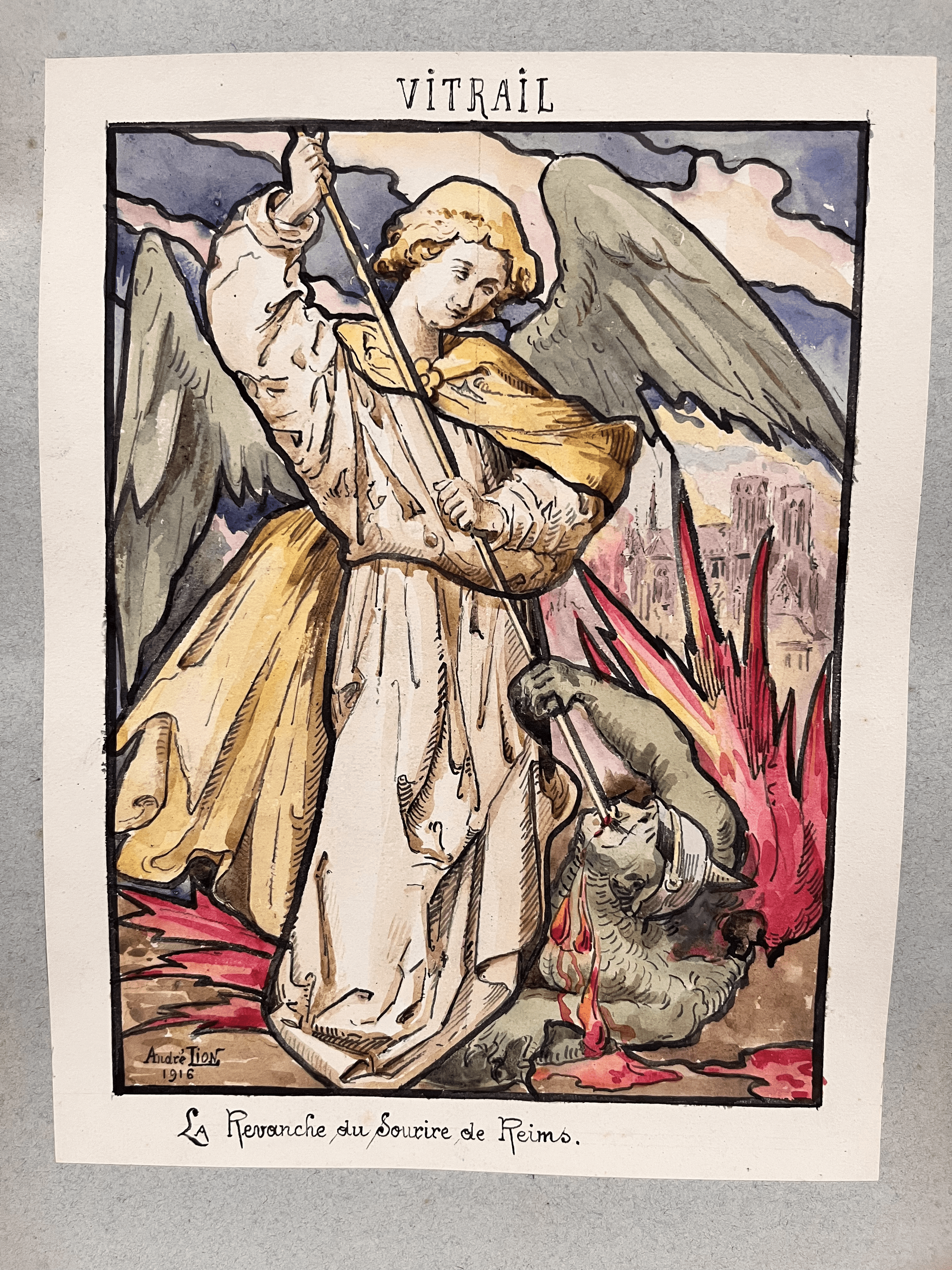 The pen is not mightier or weaker than the sword; evidently they are the same item from different perspectives. The civil shame and the popular unrest [Schuldgefühl und Unbehagen], which epitomize yet the 20th and the 21st centuries, belong thus frankly to the common people, i.e., the partisans and the pundits and the peasants all alike. Ideology is continually misunderstood, as far as nobody wants to comprehend the real distinction of ideologies and histories. Those aforementioned politicians and many others – whether classist, racist, sexist, or elsewise – like to conflate ideology for some misappointed veil behind which they could vex the real face of human history [verwechseln; plagen, vexieren]. It helps them delay the eventual moment, when the devil calls the contractual option on their borrowed sins, thus, when the powertrip [Machtrausch] arrives to the moral judgement of the devil’s better twin, who balances the obvious bankruptcy by due revival of the defrauded innocents.
The pen is not mightier or weaker than the sword; evidently they are the same item from different perspectives. The civil shame and the popular unrest [Schuldgefühl und Unbehagen], which epitomize yet the 20th and the 21st centuries, belong thus frankly to the common people, i.e., the partisans and the pundits and the peasants all alike. Ideology is continually misunderstood, as far as nobody wants to comprehend the real distinction of ideologies and histories. Those aforementioned politicians and many others – whether classist, racist, sexist, or elsewise – like to conflate ideology for some misappointed veil behind which they could vex the real face of human history [verwechseln; plagen, vexieren]. It helps them delay the eventual moment, when the devil calls the contractual option on their borrowed sins, thus, when the powertrip [Machtrausch] arrives to the moral judgement of the devil’s better twin, who balances the obvious bankruptcy by due revival of the defrauded innocents.
This story repeats itself forever, by the way. Judaea remains a hotbed for Abrahamic death-worshipping; Germania remains the correct mantle for European politicking; every colony has exited the Queen’s Commonwealth successfully; Confucius and Buddha are rolling in their graves over their children’s failure to topple ongoing genocides; and occasionally a plague culls us, e.g., COVID-19 or the Maoist-Stalinist famines, so that we remember our fallibility…the blessing and curse, that we are simultaneously sheep and shepherd.
 Everybody hopes that their ideological battles concern themselves for the grand goals of popes, kings, gods, morals, etc.; but in actual truth do those battles revolve their participants always around the dialectical loci of material sins. It is truthful, merely a fact that the “Cold War” of the 20th century was never cold, has never ended, and is now burning brightly—like the hellish fires of Mephistopheles, or like the Jovian smites of wrathful jealousy [not envy]. This Promethean and human fire has started in an ancient period, what the Latin Romans and the Grecian Pagans have called ‘the time immemorial.’ What about the several places of such time, though? Do the West and the East disagree, agree, or busy themselves over ultimately different questions? In brief, brainwashing and propaganda have nothing to do with any ideology, nor any history. Whereas ideology is a necessary component of human evolution, still the ugly phenomenon of the 20th century – nationalism, “ideology,” atomic bombs – is really the intra-, intersocietal torture which perpetuates itself, since the Carthaginians (–149) and the Yìhétuán (+1899) have beheld the involuntary genocides against their own ideologies out from the written history.
Everybody hopes that their ideological battles concern themselves for the grand goals of popes, kings, gods, morals, etc.; but in actual truth do those battles revolve their participants always around the dialectical loci of material sins. It is truthful, merely a fact that the “Cold War” of the 20th century was never cold, has never ended, and is now burning brightly—like the hellish fires of Mephistopheles, or like the Jovian smites of wrathful jealousy [not envy]. This Promethean and human fire has started in an ancient period, what the Latin Romans and the Grecian Pagans have called ‘the time immemorial.’ What about the several places of such time, though? Do the West and the East disagree, agree, or busy themselves over ultimately different questions? In brief, brainwashing and propaganda have nothing to do with any ideology, nor any history. Whereas ideology is a necessary component of human evolution, still the ugly phenomenon of the 20th century – nationalism, “ideology,” atomic bombs – is really the intra-, intersocietal torture which perpetuates itself, since the Carthaginians (–149) and the Yìhétuán (+1899) have beheld the involuntary genocides against their own ideologies out from the written history.
No genocide takes place in some atrocious physical wars per se, but takes place rather more poignantly and truthfully in the erasure of languages, histories, and arts [Sprache, Historie, Kunst]. A bullet must not be fired, nor a torture begun. That a parent cannot teach her child the real words, stories, morals of his ancestors, this suffices scientifically for genocide. [Das gilt wissenschaftlich für Völkermord.] Brainwashing and propaganda constitute indeed a phenomenon much grander than the lying, the dying, the deceiving which wartime posters, books, movies want to proliferate. Such media are merely the faces of a singular and more essential nastiness, here, are the unfortunate reality that most human beings do not want to change, nor learn, but want always instead to steal the values of others, in order to subsidize some earlier deal-with-the-devil. They do not want to pay the costs thereof, so they lust to shift the burden-of-costs unto an innocent person (or people). Although this tactic does not succeed once, the temptation of lying seems strong and innate [wirken]; it denotes the ironic envy of the Promethean fire [Neid; Verrat]. Our mothers bear us into the world with the gift-of-language, but we squander it at all ages while we misremember our fathers’ words-and-stories. Mismanagement, nonfeasance, defraudment: it is true that British lawyers before the 18th century have enjoyed Norman, Parisian French; but it is also true that good lawyers, no matter their heritages of the practice, occupy themselves rather in the reality than the phantasy…rather in the effects than the causes. The “ideologies” of the Cold War comprise thus any tactic or strategy that obfuscates those devil-deals at all. The bad politicians identify themselves by their sinful desires to pervert the just, free, or equal assignments of people’s (economic) costs. On the other hand, the good ones appreciate the highly valuative essence of the human species, and they apply themselves publicly (politically) in order to exalt those costs [fordern sowie fördern].
The border between the real and fake mismanagements consists likewise between the real and fake ideologies: Wherever the morals [history], the stories [ideology], and the words [society] in a given person are aligning together, thereby her intentions and actions are becoming identical. Whilever she beholds this status during the temporal drags of natural life, so anyone notices that “defraudment” excludes always the rich, the mighty, etc., pertains only to those whom they govern; and, worse, that the contemporary civilization would revolutionize, if its peoples realized the historical (not merely ideological) judgements upon non-, mis-, and malfeasances (2015–2025).
 Any genocide is less effective action, is more causative intention; reveals itself around human sins, between technologies, languages; and thwarts itself forever, when the West and the East know each other…whenever their peoples, governments, hermeneutics manage the Promethean fire through engaged discipline. Genocides are the consequences of sins-without-outlets, insofar as humanity is inescapably half evil. Their opposite comprises social revolution, technological evolution, and linguistic proliferation. When not disciplined, governments are ideologically self-destructive [genocidal]. When disciplined, they are historically gracious and humble [trusting]. Whether more or less so, it depends on the society-wide trust [credit and faith]. As the pen could write, and as the sword could wreak, so their hands must decide that wrath and envy should amalgamize awful jealousy [Eifersucht], or in the alternative, should sublate themselves respectively for courage and authenticity [Mut; Echtheit]. Therefore, brainwashing and propaganda are merely opportune tools; and furthermore, they substantiate themselves wherever a person (or a people) is buying the wrong costs for any unjust prices—or in the alternative, wherever one’s sins have become others’ values.
Any genocide is less effective action, is more causative intention; reveals itself around human sins, between technologies, languages; and thwarts itself forever, when the West and the East know each other…whenever their peoples, governments, hermeneutics manage the Promethean fire through engaged discipline. Genocides are the consequences of sins-without-outlets, insofar as humanity is inescapably half evil. Their opposite comprises social revolution, technological evolution, and linguistic proliferation. When not disciplined, governments are ideologically self-destructive [genocidal]. When disciplined, they are historically gracious and humble [trusting]. Whether more or less so, it depends on the society-wide trust [credit and faith]. As the pen could write, and as the sword could wreak, so their hands must decide that wrath and envy should amalgamize awful jealousy [Eifersucht], or in the alternative, should sublate themselves respectively for courage and authenticity [Mut; Echtheit]. Therefore, brainwashing and propaganda are merely opportune tools; and furthermore, they substantiate themselves wherever a person (or a people) is buying the wrong costs for any unjust prices—or in the alternative, wherever one’s sins have become others’ values.
These words are identical costumes of a fundamental ideology, humanity, insofar as a person beholds children and adults, leaders and contributors…purposes and capacities, goals and means. [Die sind ideologische Trachten.] Have our parents forgotten the age, when they were also sinful idiots who coveted pride, envy, lust, etc.? Or, do they think wrongly that they overcame those immanent weightful burdens? The ancients knew once, are passing down right now that the battle [Kampf, Gefecht] is never over, because it never ends, for if it ended, no children would enjoy the warmth of a joyful community who could raise them into their adulthoods. Human civilization depends fundamentally on the said burdens, not in the sense that the adults could liberate themselves of them, but for the joy which begets itself in all neighborly trusting. Depending means caring; caring preforms discipline; discipline directs trust; and all vice versa. These words are respectively the contraposed poles of a singular dialectic, here, are the infinite process of human maturation in natural life with scarce time. In this inescapable process must all persons overcome their unique sins among the individual and the societal [Überich bzw. Unbehagen]; must transform the sins into values, prevent the reverse; or else no civilization survives in the short-, the mediate-, or the long-runs.
Human sins are substantive in brainwashing and propaganda, i.e., in the strategies of a genocide. However, as soon as that Promethean fire becomes managed, a sin becomes therethrough a value—materially and abstractly. That is the true and real essence of any bona-fide ideology. It sublates technology and language, instead of sequestering them. Grand management is thus the civil key, while it keeps the fire forward, transforms sins into values, and mitigates undue reversals. The difference consists in those places of the human civilization, whence all children learn sometime the alignment of intentions and actions; whence those become adults; and wherefor they meet the essential relationships that substantiate the individual, her person, and their society thru the total human species [wesentliche Verhältnisse kennenlernen].

 Time seems ideological, until its physical forces appear through the chisels which a person wields during her long-time development. The chisels realize time, the persons conceive place, and their subsequent work maintains society thus against the otherwise-destructive decay that time wreaks with nature. [Wert = Arbeit × Zeit = Management = Führung.] Here, the lazy old children misunderstand that their age could replace the intrinsic values from active learning [ersetzen], whereas the always young children epitomize daily the immanent human struggle to alchemize time’s decay into nature’s creation (and vice versa) [Bemühung]. Living means acting, wanting; making, intending; and so on. The opposite, dying, means precisely that laziness, which carries idiotically parental false ideologies from childhood into adulthood, thence, into the daises of governments…into the hearts of earnest unwitting denizens, who contribute to the society, hoping that their societies’ leaders would know better, but overlooking that they are exploiting them through the sinful, wrongful invocations of all parents’ unresolved traumas…of everybody’s jealous wraths that occupy successive generations. Some parents learn this so gruesomely at a young age, that they perpetuate exactly the problem while they want to “protect” their children from the “horrors” of human history. Other parents produce other mistakes. Nonetheless does every parent actualize herself, lifts the child to the fullest potential, exalts human civilization, and shall eradicate all brainwashing and propaganda forevermore, as long as she keeps herself active, gracious, humble, childlike in order to change herself reiteratively for the grandest purpose: that practicable self-love thru one’s neighbors and families. [Da ist Gemeinschaft gegen Gesellschaft.]
Time seems ideological, until its physical forces appear through the chisels which a person wields during her long-time development. The chisels realize time, the persons conceive place, and their subsequent work maintains society thus against the otherwise-destructive decay that time wreaks with nature. [Wert = Arbeit × Zeit = Management = Führung.] Here, the lazy old children misunderstand that their age could replace the intrinsic values from active learning [ersetzen], whereas the always young children epitomize daily the immanent human struggle to alchemize time’s decay into nature’s creation (and vice versa) [Bemühung]. Living means acting, wanting; making, intending; and so on. The opposite, dying, means precisely that laziness, which carries idiotically parental false ideologies from childhood into adulthood, thence, into the daises of governments…into the hearts of earnest unwitting denizens, who contribute to the society, hoping that their societies’ leaders would know better, but overlooking that they are exploiting them through the sinful, wrongful invocations of all parents’ unresolved traumas…of everybody’s jealous wraths that occupy successive generations. Some parents learn this so gruesomely at a young age, that they perpetuate exactly the problem while they want to “protect” their children from the “horrors” of human history. Other parents produce other mistakes. Nonetheless does every parent actualize herself, lifts the child to the fullest potential, exalts human civilization, and shall eradicate all brainwashing and propaganda forevermore, as long as she keeps herself active, gracious, humble, childlike in order to change herself reiteratively for the grandest purpose: that practicable self-love thru one’s neighbors and families. [Da ist Gemeinschaft gegen Gesellschaft.]
Indeed, personal maturity comprises never some ideological endurance of emotional injuries, nor ever some false seizure of species-essential histories. Always do the words, the concept conjure alike the engaged, disciplined, and reciprocal alignment in a given moment between:
i. the individual [Individuum; Triebe],
ii. the personal [Mensch; Einzelne], and
iii. the societal [Gesellschaft; Kontrollen].

 Good parents know that a toddler has not learned ‘object-permanence.’ Who knows then when a teenager learns ‘history-permanence’? The chainful burdens of time are undoubtedly harsh under the weightful duty to realize a joyous and communous administration [family], but when a person wields them historically in the capacity of a cognizant adult, the burdens yield actually so a phenomenon, which material physicists take somehow for impossible (after Einstein and Oppenheimer). They believe that no energy could replicate itself perpetually, for it would violate the laws of thermodynamics. Meanwhile they want to misunderstand the semi-autonomous explosions of human language, technology, civilization via the preceding 12.000 years—as if [metaphorically] the nuclear radiation did not owe itself really to nature’s capacity to outwit time, thereby, Her will to create a miraculous surplus greater than the sum of His constituent halves. Karl Marx has called that once Kapital; Carl Menger has used afterwards Grenznutzen; Martin Luther in 1517, in 1968 has abrogated hypocritical indulgences; the physicist knows valent events among electrons and protons: but, no matter the age, the æon, or the child, still does the West reach out, hoping that the East could share its lessons, much like the East hopes that the West could learn them.
Good parents know that a toddler has not learned ‘object-permanence.’ Who knows then when a teenager learns ‘history-permanence’? The chainful burdens of time are undoubtedly harsh under the weightful duty to realize a joyous and communous administration [family], but when a person wields them historically in the capacity of a cognizant adult, the burdens yield actually so a phenomenon, which material physicists take somehow for impossible (after Einstein and Oppenheimer). They believe that no energy could replicate itself perpetually, for it would violate the laws of thermodynamics. Meanwhile they want to misunderstand the semi-autonomous explosions of human language, technology, civilization via the preceding 12.000 years—as if [metaphorically] the nuclear radiation did not owe itself really to nature’s capacity to outwit time, thereby, Her will to create a miraculous surplus greater than the sum of His constituent halves. Karl Marx has called that once Kapital; Carl Menger has used afterwards Grenznutzen; Martin Luther in 1517, in 1968 has abrogated hypocritical indulgences; the physicist knows valent events among electrons and protons: but, no matter the age, the æon, or the child, still does the West reach out, hoping that the East could share its lessons, much like the East hopes that the West could learn them.
Children and adults do not need rules, nor regulations, nor ideologies in their lives [benötigen]. Because both are still children regardless of the momentary age, all humans require actually a reason to help themselves.
[Das Regieren, das Regeln und die Ideologie sind zum Erziehen unnötig, weil Menschen sich schon zu helfen erfordern.]
 Although the idiots announce that such maxim could include any self-destructive decays of social trust, historical truth, etc., in fact does it punish their misinterpretation. With values do sins not consume, but appoint and advise. Individuals beget societies, and persons are the living evidences therebetween. Humans help ourselves, because we have each other (and vice versa). Consequently does all grand management comprise immanently and actively the ways of civilization [Manieren der Zivilisation], so far as a given society becomes multiplied through the absolute and the relative personalities across individual times and places. In the sense of ideological geopolitics can the leaders not be Führer, where the latter are factually instead dictators; but in the sense of material history are the leaders rather always those persons, no matter the scale or the setting, who comanage a consensus with the contributors. Real, deserving leaders make themselves grand contributors in other scales or other settings at the same time. They choose willingly daily to give up their votes on most (or all) questions, in order to pronounce elsewise the prerogatives of the commonly constructed consensus.
Although the idiots announce that such maxim could include any self-destructive decays of social trust, historical truth, etc., in fact does it punish their misinterpretation. With values do sins not consume, but appoint and advise. Individuals beget societies, and persons are the living evidences therebetween. Humans help ourselves, because we have each other (and vice versa). Consequently does all grand management comprise immanently and actively the ways of civilization [Manieren der Zivilisation], so far as a given society becomes multiplied through the absolute and the relative personalities across individual times and places. In the sense of ideological geopolitics can the leaders not be Führer, where the latter are factually instead dictators; but in the sense of material history are the leaders rather always those persons, no matter the scale or the setting, who comanage a consensus with the contributors. Real, deserving leaders make themselves grand contributors in other scales or other settings at the same time. They choose willingly daily to give up their votes on most (or all) questions, in order to pronounce elsewise the prerogatives of the commonly constructed consensus.
Some persons contribute, while fewer persons comanage. The most important distinction sets itself in the change of the perspective. No longer would some leader be a vertically, horizontally commanding dictator, but becomes instead the other side of a certain common changing coin. Leaders become mere contributors in other group-settings, besides that they are inversed contributors within their given groups. As it ‘takes two to tango,’ so it takes authentic adults to behave like real children [not like ideological idiots]. No human being is ever so infallible that her commandments would equate those of popes, kings, gods, morals, etc. (This too includes the popes and the kings.) However, because certainly a few persons are coincidentally and unpredictably suited to one, several unique times-and-places, therefore every group enjoys one, several, many very capable contributors, yet enjoys only a tenth of its membership (at most, a fifth), who can and ought to bespeak the total (contextual) prerogatives of the members. Human nature assures here that, across all human contexts, always the majorities want to vote, and always the superminorities sacrifice their personal sins pro tempore, so that those sins abate duly; permit, enable an executive consensus; govern therethrough the other (meanwhile intact) sins within the group; and let the same flourish dutifully under causative, political, effective transparency.
The leaders direct, make rules, and set policies [regieren]. The contributors employ, make regulations, and set tactics [regeln]. Every contributor is somewhere a leader, and every leader is somewhere a contributor. Every Führer is thus by the definition not quite a dictator, except in ideological falsehoods; but is evermore the conduit for personal leadership [zum Führen], in order that a groupwide strategy wield itself at all for the tactical means to accomplish its unique ways onto common ends [goals]. When these artful words become scientific, they look thusly:
Every child of every birth, generation, æon begins her life as a ‘blank slate,’ as a tabula rasa; but that is true, only while immanent human instincts perceive themselves incorrectly for a birth-bound, family-dutiful ego. More precisely are they the evolving amalgam of the emotions [individual], the mind [personal], and the opinions [societal; values, morals]. The more complex the given lifeworld is, the more complex are anyone’s emotions, mind, opinions…the always heavy unique balance that contains one’s ideology [linguistic perspective] versus one’s history [technological capacity]. For example, the blank slates who learn two, four languages as fluently as they can, these children are not less, but more ideological than their monolingual cohorts, because the former can wield, utilize, synthesize more perspectives, then more capacities, then a more complex mind for grander management, ad infinitum. Ideology churns, causes history; history sublates, effects ideology; and the way between them comprises in every practicable moment the upgrade of self-love thru one’s neighbors and families. Loyalty is important, as much as followthrough. It takes two to tango: and hence, everyone starts blank, because the mother’s blessing absolves the child of the father’s curse.
The bad children are likewise bad leaders and contributors, for through their lives they – women and men – do not resolve the blessing-curse of their parents. The good children are not, but become good leaders and contributors, only while they revolve their blessing-curses in order to share such joy with the community, the society, and the species-at-large. Generally this is called “self-actualization,” but in narrowly political contexts, the phenomenon calls itself simply the kitchentable [Küchentisch].

 Every nation is simultaneously a mother- and a fatherland, as long as its people, its government, and its hermeneutics would be wisely dialectical…wisely evolutionary, in order to capitalize human ideological opportunities for historical prosperous uptrades, so that every child could learn over all generations the meanings of the warm and hearty meal [gemütliche Mahlzeit]. It is shared, because elsewise it does not exist.
Every nation is simultaneously a mother- and a fatherland, as long as its people, its government, and its hermeneutics would be wisely dialectical…wisely evolutionary, in order to capitalize human ideological opportunities for historical prosperous uptrades, so that every child could learn over all generations the meanings of the warm and hearty meal [gemütliche Mahlzeit]. It is shared, because elsewise it does not exist.
The table comprises the tactics. The meal composes the strategy. The keys to unlock this maxim sit throughout the discussion. Whether the parents should administer their chains of managements; or, faith and credit could unlock, decrypt wrathful revenge into alleviating authenticity; or, party and policy would align procedural pen along substantive sword, in order to sublate equal causes and free effects: it all depends on the ideological feasances of costs, and likewise on the historical values of justice. The dictators know only the risks of their strategies and seldom the remainders [wissen, saber]. The leaders cognize their services in contrast unto a greater purpose that owes itself only to others’ capacities [kennen, conocer]. Dictating and leading are different in the intentions, not the actions; they are neither good nor evil; they are the distinguishing frictions which underlie children and adults, contributors and comanagers, popes and kings, gods and morals [führen gegenüber leiten].
 The 20th century has taught the human species that Pol Pot, Chí Minh, Modi, Putin, and Xi shall convey the truly ugly essence of human phenomena, no less than do Trump, Maduro, Khomeini, Himmler, Jackson (1830), and Napoléon 1er (1796). When some children do not enjoy all the meal, they like to upturn the whole table. Because they are weaker than their parents, they underwrite devilish contracts for temporary might. This backfires in maturity. Of course, the remaining children clean the messes, manage the kitchens, and remake the meals. So it goes with the idea of humanity.
The 20th century has taught the human species that Pol Pot, Chí Minh, Modi, Putin, and Xi shall convey the truly ugly essence of human phenomena, no less than do Trump, Maduro, Khomeini, Himmler, Jackson (1830), and Napoléon 1er (1796). When some children do not enjoy all the meal, they like to upturn the whole table. Because they are weaker than their parents, they underwrite devilish contracts for temporary might. This backfires in maturity. Of course, the remaining children clean the messes, manage the kitchens, and remake the meals. So it goes with the idea of humanity.
The monetary decisions [sic] between vampirism and self-perpetuating wealth consist therefore in a simple, albeit honest magic-trick: paying the right risks, at right times, for right costs, by personal ways, with individual means, to societal ends. As the captain handles strategy [erledigen], so the quartermaster and crew handle tactics.
Sovereignty versus Administration
It is after all not a coincidence that the children’s storybooks tell their parents the tales about successful pirates, courageous captains, cunning crews, and all such in the stead of more historical scenarios, namely, that the many captains during Ho Chí Minh’s campaign (+1975) as well as the many field-marshals in Troy’s deceit (–1200) have had always bilaterally to endure fragging, mutiny, jealous wrath, and so forth. It exhibits again nature’s capacity to outwit time, insofar as humans’ recalcitrance were not an obstacle, but is indeed the cattle-goad that keeps the leaders honest in the first place.
 Without a rebellion would the Führer forget the inherent duties to coóperate (not defect). Without a teenager would the parents undervalue, underutilize the inherent bindings to comanage (not dictate). Despite the ironically sinful wishes of lazy parents is always contributors’ disobedience the requisite ingredient in whichever group-setting, in order that the social friction could yield so tangible comprehension, compromise, and compassion.
Without a rebellion would the Führer forget the inherent duties to coóperate (not defect). Without a teenager would the parents undervalue, underutilize the inherent bindings to comanage (not dictate). Despite the ironically sinful wishes of lazy parents is always contributors’ disobedience the requisite ingredient in whichever group-setting, in order that the social friction could yield so tangible comprehension, compromise, and compassion.
Childrearing upgrades both sides of children: the physical child learns his role-modeling, and the young child learns her ancestors [Rollengestaltung erlernen]. The one’s obedience presupposes the other’s disobedience. Values do not replace sins, but manage and uptrade them happily…communally, freely, and equally [aufhandeln].
 Contemporary ideologies (2001 & 2025) like to depict values as if they belonged elsewhere than in material history, or moreover, in another domain than sins. Actually do values belong only to sins. Values are inverted, actively managed sins—nothing more or less—so far as their intentions are in every case (personally) identical. This pertains to peacetime and wartime, to peoples and governments…as much as churches and states, pews and bullets, tithings and taxes, families and neighborhoods, children and adults, meals and kitchens. The meal shares itself through the kitchen, because elsewise neither exists in the end. The sinners defect, dictate, sacrifice their families for some vampiric lust after wrathful, jealous consumption. The leaders are the guilty children who have learned, are learning still the lessons which human civilization wants to teach. They coóperate, comanage, and uptrade their communities, their jobs and associations, their churches and states in order to secure historical & ideological maturity.
Contemporary ideologies (2001 & 2025) like to depict values as if they belonged elsewhere than in material history, or moreover, in another domain than sins. Actually do values belong only to sins. Values are inverted, actively managed sins—nothing more or less—so far as their intentions are in every case (personally) identical. This pertains to peacetime and wartime, to peoples and governments…as much as churches and states, pews and bullets, tithings and taxes, families and neighborhoods, children and adults, meals and kitchens. The meal shares itself through the kitchen, because elsewise neither exists in the end. The sinners defect, dictate, sacrifice their families for some vampiric lust after wrathful, jealous consumption. The leaders are the guilty children who have learned, are learning still the lessons which human civilization wants to teach. They coóperate, comanage, and uptrade their communities, their jobs and associations, their churches and states in order to secure historical & ideological maturity.
Bad parents extol false heroes due to true self-idolization, i.e., incredible or awful envy. A bad parent is any who distracts his children ideologically, sets them into a falser history, and sacrifices them through his rites-of-passage for the perversion of nature’s laws to self-maturation. Such children grow up and perpetuate the traumatic mythos afterwards into successive generations. They grow older, albeit not maturer. Usually the sinners obey their authorities so harshly, that their survival begets them a pyramidal scheme which enables to pass down the traumas. (Vampirism begets itself.)
 Good parents humble themselves graciously in contrast. They opportunize mutiny for mealtime. They grow maturer, albeit always younger. Invalidated or unsatiated emotions [not feelings] can feed themselves there in good (parental) company, do let themselves mature, do wield tangible happiness, et cetera. These children mimic their parents [nachahmen]; they become contributors to the comanagers; and realize that the distinction of the adults does not consist of anyone’s ages, but consists in the roles between the kitchen’s chefs and the table’s critics. Childhood is surely visible in a 75-year-old: but whether that child be an adult, it depends on the capacity to cook; and whether that child be good, it depends on the capacity to contribute. Lieutenants, captains, and colonels know that. Ensigns, captains, and admirals heed it. Novices, fellows, and masters experience it. Students, teachers, and researchers learn it. The wheel of civilization turns, overturns, and upturns. Ultimately nobody can escape that the sovereign kings and popes were never dictators, but are repeatedly the servants of their slaves, the hostages of their councils and counselors…the leading obedients for all their sinful, surrounding disobedients.
Good parents humble themselves graciously in contrast. They opportunize mutiny for mealtime. They grow maturer, albeit always younger. Invalidated or unsatiated emotions [not feelings] can feed themselves there in good (parental) company, do let themselves mature, do wield tangible happiness, et cetera. These children mimic their parents [nachahmen]; they become contributors to the comanagers; and realize that the distinction of the adults does not consist of anyone’s ages, but consists in the roles between the kitchen’s chefs and the table’s critics. Childhood is surely visible in a 75-year-old: but whether that child be an adult, it depends on the capacity to cook; and whether that child be good, it depends on the capacity to contribute. Lieutenants, captains, and colonels know that. Ensigns, captains, and admirals heed it. Novices, fellows, and masters experience it. Students, teachers, and researchers learn it. The wheel of civilization turns, overturns, and upturns. Ultimately nobody can escape that the sovereign kings and popes were never dictators, but are repeatedly the servants of their slaves, the hostages of their councils and counselors…the leading obedients for all their sinful, surrounding disobedients.
Wrong leaders like to behold an exclusive place aloft the temporal pyramid, but the more exclusively this place is set, the more quickly the psychosocial gravity of its arrogance implodes under temporal recalcitrance. Self-isolation spells their doom as soon as the pyramidal base churns against their unjust constrictions. Their betters – the good leaders – comport themselves rather below the pyramid’s base, shift its eyesight from above to below, make themselves the servants thereof, and enable the ongoing executive consensus among the whole membership [learning, experience; lernen, erfahren; experimentar]. The difference lies in the quality of intra-, interpersonal communications, whereby the conductors and the composers transform themselves. It denotes whether jealous wrath would sleep warmly with a happy stomach, or should effect a just mutiny for natural and temporal causes.
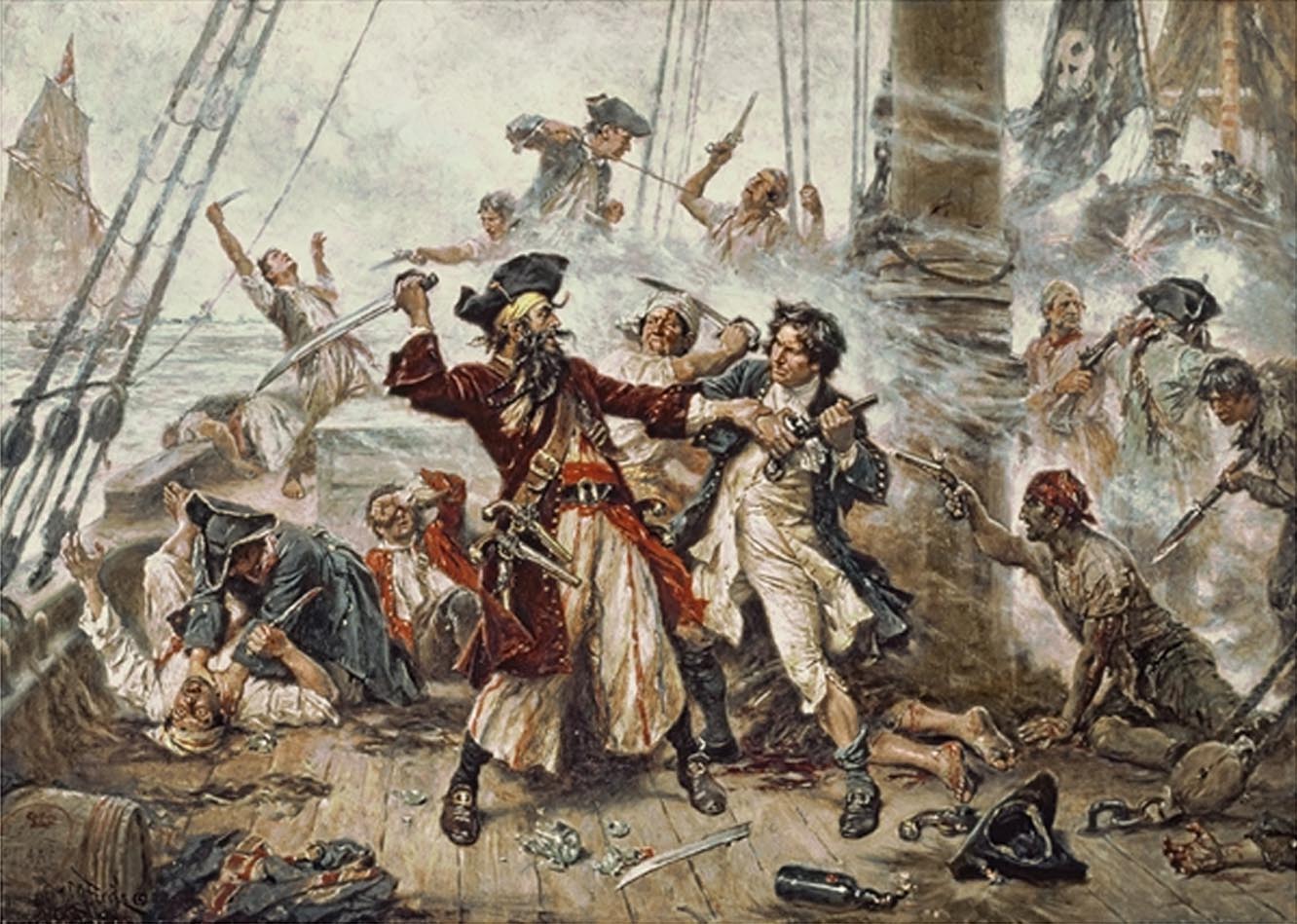 As it takes two to tango, so truth takes myth for its coin-opposite in the life-game of human politics. Leaders and contributors must believe in themselves, in each other—more especially, in their total capacity, discipline, and credit during the time-and-place of a communous purpose. The life-game was not once a question of singular sums, thence, has not comprised the political cliques or the backhanded sabotages which “ideology” wants to weaponize (a ‘zero-sum game’). Such thinking lets the idiots overtake the remainders, enslave them, and begin so the genocidal faces of human ideas. The game was actually, is still the arena wherein the champions earn public merits freely, share happy opportunities equally, and extol human justice purposefully. Success consists not at the outcomes, but in the pirate’s maxim along the equatorial tradewinds of competitive commercial crewing: “All for one and one for all!”
As it takes two to tango, so truth takes myth for its coin-opposite in the life-game of human politics. Leaders and contributors must believe in themselves, in each other—more especially, in their total capacity, discipline, and credit during the time-and-place of a communous purpose. The life-game was not once a question of singular sums, thence, has not comprised the political cliques or the backhanded sabotages which “ideology” wants to weaponize (a ‘zero-sum game’). Such thinking lets the idiots overtake the remainders, enslave them, and begin so the genocidal faces of human ideas. The game was actually, is still the arena wherein the champions earn public merits freely, share happy opportunities equally, and extol human justice purposefully. Success consists not at the outcomes, but in the pirate’s maxim along the equatorial tradewinds of competitive commercial crewing: “All for one and one for all!”
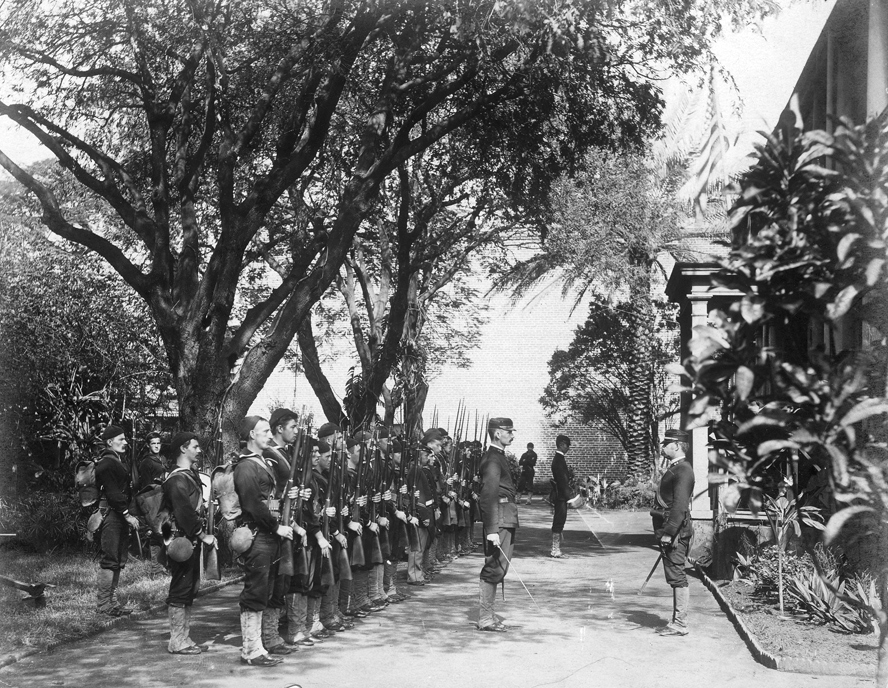 Ideologically: kings and popes think somehow that their mantles would rule, regulate, dictate the tactics of their strategies. They like so to ‘put the cart before the horse.’ They steal the autonomous dignity of the slaves, unlearn ancient Pagan slavery, replace it for the monstrous Medieval version, and commit their children and councils to so many centuries of covetous horseshit. Besides that it backfires eventually, the horses feel rightfully abused before they rebel against the riders. The carts cannot transport their wares heavily enough now to justify due infrastructure-maintenance costs. Total trade slows down, general poverty drives up, and the only constant is that those of power stay in power. The ‘horses’ need the riders, yes, but the latter like to forget that (1) they need the former equally and (2) neither side exists without the cart anyways.
Ideologically: kings and popes think somehow that their mantles would rule, regulate, dictate the tactics of their strategies. They like so to ‘put the cart before the horse.’ They steal the autonomous dignity of the slaves, unlearn ancient Pagan slavery, replace it for the monstrous Medieval version, and commit their children and councils to so many centuries of covetous horseshit. Besides that it backfires eventually, the horses feel rightfully abused before they rebel against the riders. The carts cannot transport their wares heavily enough now to justify due infrastructure-maintenance costs. Total trade slows down, general poverty drives up, and the only constant is that those of power stay in power. The ‘horses’ need the riders, yes, but the latter like to forget that (1) they need the former equally and (2) neither side exists without the cart anyways.
 Historically, then: kings and popes are exactly as good, grand, monstrous as their practicable skills to rein the rider (not necessarily the horse) [zügeln]. As humanity is sheep-and-shepherd, so leadership is horse-and-rider. The ongoing history of human beings proves scientifically (and artistically) thereby that the peasants, pundits, partisans are as political as the ‘politicians’ who reign the cart [herrschen, regieren]. Everyone is political as long as anyone’s opinions, minds, and emotions intermingle themselves. Despite idiots’ phantasies, no quality of authoritarian oppression succeeds actually in the end to quell slaves’ rebellions; at most, it induces the slaves’ skills to execute, pull through revolutionary mutinies. The cart belongs really to the rider’s strategic way, to the horse’s tactical path…to the foreigners in the trade-chain, who exchange the wares at the end, use them well, and would be poorer without the camaraderie, teamwork, or entrepreneurialism that had preceded everything (orchard and sea).
Historically, then: kings and popes are exactly as good, grand, monstrous as their practicable skills to rein the rider (not necessarily the horse) [zügeln]. As humanity is sheep-and-shepherd, so leadership is horse-and-rider. The ongoing history of human beings proves scientifically (and artistically) thereby that the peasants, pundits, partisans are as political as the ‘politicians’ who reign the cart [herrschen, regieren]. Everyone is political as long as anyone’s opinions, minds, and emotions intermingle themselves. Despite idiots’ phantasies, no quality of authoritarian oppression succeeds actually in the end to quell slaves’ rebellions; at most, it induces the slaves’ skills to execute, pull through revolutionary mutinies. The cart belongs really to the rider’s strategic way, to the horse’s tactical path…to the foreigners in the trade-chain, who exchange the wares at the end, use them well, and would be poorer without the camaraderie, teamwork, or entrepreneurialism that had preceded everything (orchard and sea).
Political oppression feeds a particular devil, satiates a certain contract therewith, and transforms its underwriters to unfortunate vampires. The champions of the Cold War – a nasty arena – have sold their souls before they could learn that any human dependence is no weakness, but is ever nature, faith, neighborhood, credit, discipline, and time.
The quarters-mirror is essentially dialectical. It reflects once the captain and the quartermaster; twice, the customer and the customs [Kunden; Zölle, Bräuche]; and thrice, the adventurous voyage that unites them so to the crew and the ship. They work, share, regulate—altogether, joyfully, dutifully [werken, aufteilen, regeln]. What becomes given, becomes indeed returned: it depends only on the given (promissory) context.
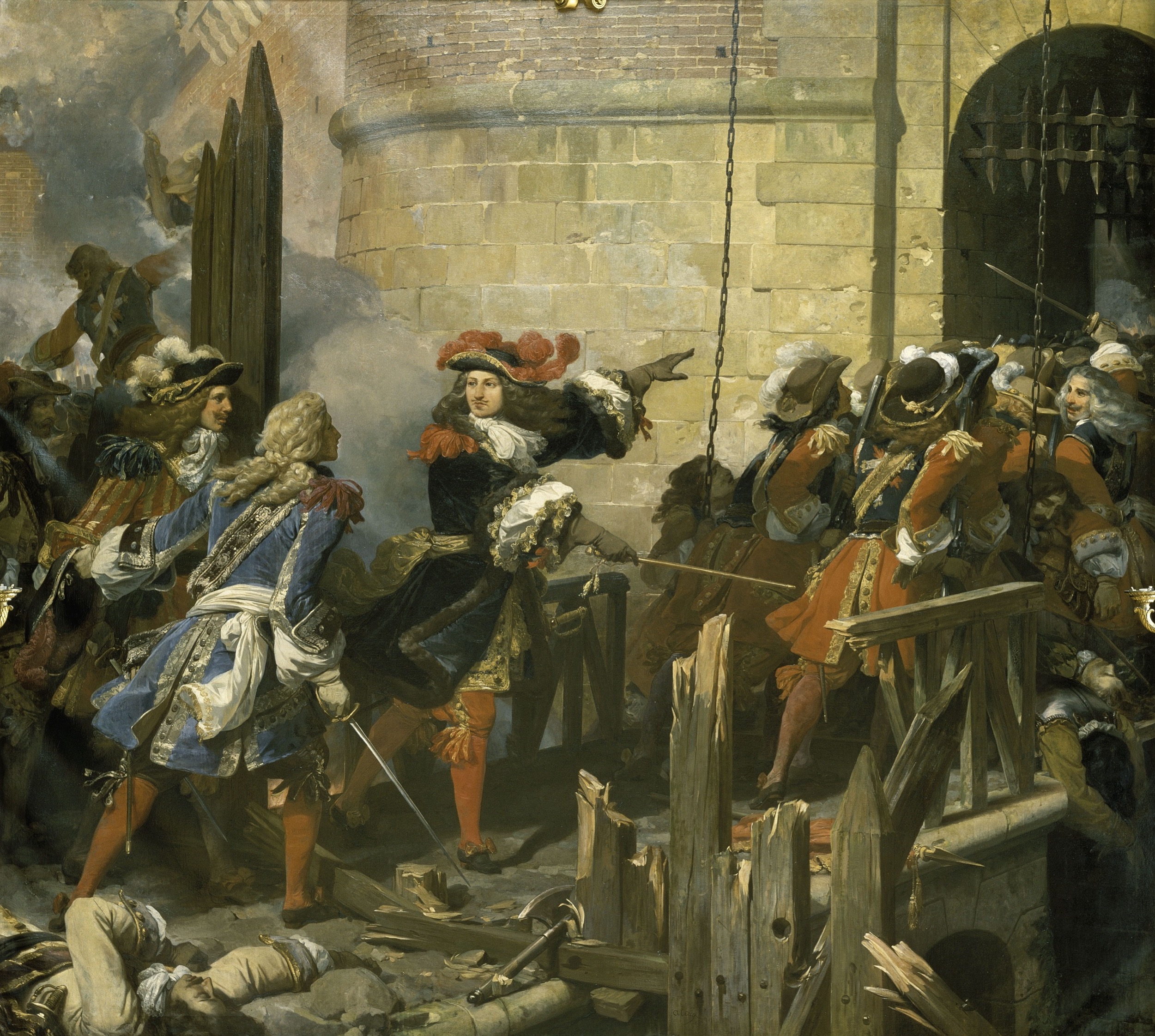 Sovereignty is ridership, and administration is crewhood. Rulemaking is strategic management of the game’s risks, whereas regulating is tactical execution of the game’s means, ways, and ends. By whichever ideology do both sides occupy themselves in the horse and the ship, in the fox and the scorpion, in the esquires and the colonels…but by real history must they be substantive, material, truthful beyond some mythos. The path of becoming/being which sits therebetween constitutes the ways of human civilization. The sovereign captain navigates such ways, while the administrative crew steer them. They have each other, as far as they help themselves; and their livelihoods depend on continuous coóperation, never really on opportune defection. The cart (or ship) contains as such their active and intensive relationship. It is their mutual assignment, in order that the human process could enjoy outside their lanes the civilízatory security to mature in nature over time [könnte, pueda; Handelswege]. Whereas the rapid confluences of civilization are chaotically ordered and underlie its infrastructure, so the surrounding forests bear many fruits and upgrade its architecture.
Sovereignty is ridership, and administration is crewhood. Rulemaking is strategic management of the game’s risks, whereas regulating is tactical execution of the game’s means, ways, and ends. By whichever ideology do both sides occupy themselves in the horse and the ship, in the fox and the scorpion, in the esquires and the colonels…but by real history must they be substantive, material, truthful beyond some mythos. The path of becoming/being which sits therebetween constitutes the ways of human civilization. The sovereign captain navigates such ways, while the administrative crew steer them. They have each other, as far as they help themselves; and their livelihoods depend on continuous coóperation, never really on opportune defection. The cart (or ship) contains as such their active and intensive relationship. It is their mutual assignment, in order that the human process could enjoy outside their lanes the civilízatory security to mature in nature over time [könnte, pueda; Handelswege]. Whereas the rapid confluences of civilization are chaotically ordered and underlie its infrastructure, so the surrounding forests bear many fruits and upgrade its architecture.
To tango, thus, it takes both agriculture and horticulture. The rider shall speak, be sovereign, and rule the cart. The crew shall write, be appointive, and regulate the cart. The strategic plans shall cause, and the tactical logistics shall effect. The 2 is & becomes the 4, the 6, and the 8 [werden; devenir, estar]. The ends can never justify the means, in effect, because the ends are the means forever. The substantive process lies yet truly in the ways throughout the orchards, the forests, and the seas.
 In the 21st century have the West and the East inherited therefore a falsely frightening, ideologically driven mistake about all the foregoing—especially about the essential relationships that constitute human æons. Taipei, Beijing; Kyiv, Moscow; Havana, Miami; Saigon, Hanoi; London, Malvinas; D.C., Monrovia, and Johannesburg epitomize altogether the tragic irony, whenever human nations misunderstand history and ideology. Their ministers have confused themselves, their colleagues, the public-at-large that administration should exclude lawgiving (1830–1953 & 2024). That makes zero sense, as far as every Policy must reflect instead not only itself, but also Equity, Law, and Justice. Evidently they are the same item from different perspectives: the laws cannot give or pronounce, but with a minister; the policies cannot appoint or advise, but with a lawgiver; and so forth, of course, until an unflat and dynamic essence beholds itself wholly. Central governments are certainly the Leiter, the idealistic leaders; their dispersed peoples are ever really the Führer, the driving contributors; and their common hermeneutics decays under any oppression or authoritarianism, but it thrives with any-and-all diverse egalitarianism (1914, 1949, 1991). Whereas ideological sinful bureaucrats want to misunderstand that their bureaus are inescapably, dutifully enabled to help the poorest peasants, etc., nevertheless historical honorable heroes realize actively, intensively that their positions owe themselves to the forest’s fruits always before the fruits’ horsecarts.
In the 21st century have the West and the East inherited therefore a falsely frightening, ideologically driven mistake about all the foregoing—especially about the essential relationships that constitute human æons. Taipei, Beijing; Kyiv, Moscow; Havana, Miami; Saigon, Hanoi; London, Malvinas; D.C., Monrovia, and Johannesburg epitomize altogether the tragic irony, whenever human nations misunderstand history and ideology. Their ministers have confused themselves, their colleagues, the public-at-large that administration should exclude lawgiving (1830–1953 & 2024). That makes zero sense, as far as every Policy must reflect instead not only itself, but also Equity, Law, and Justice. Evidently they are the same item from different perspectives: the laws cannot give or pronounce, but with a minister; the policies cannot appoint or advise, but with a lawgiver; and so forth, of course, until an unflat and dynamic essence beholds itself wholly. Central governments are certainly the Leiter, the idealistic leaders; their dispersed peoples are ever really the Führer, the driving contributors; and their common hermeneutics decays under any oppression or authoritarianism, but it thrives with any-and-all diverse egalitarianism (1914, 1949, 1991). Whereas ideological sinful bureaucrats want to misunderstand that their bureaus are inescapably, dutifully enabled to help the poorest peasants, etc., nevertheless historical honorable heroes realize actively, intensively that their positions owe themselves to the forest’s fruits always before the fruits’ horsecarts.
The minister works therefore not mightier or weaker than the politician [wirken], but becomes and is the inversed focus thereof, in order that the public pulpit and the printing press should connect evermore the right tactics to the right strategy (and vice versa). So it goes with the ideas around human beings; their managements of laws, policies, and justice; and their feasances of opportunities, values, costs, and sins. The captain is a chief strategic entrepreneur; the quartermaster is a chief tactical expert; the crew, a civil way to comanage scarce active discipline; and the chaplain, a clerical way to contribute intensive plentiful morals.

 None are wiser than, but can appreciate well the gods’ wisdoms upon the tradewinds, the weather, and the wares. Thus: when not disciplined, groups and teams are ideologically self-destructive [genocidal governments]; and, when disciplined, they are historically gracious and humble [trusting neighbors]. Whether more or less so, it depends on the voyage-long support and the tale-wise adventures [creditworthy, faithful families]. Whosoever uses the tools, skills, tasks for the betterment of the crew, instead of ironic self-destruction, she shall save hence many dollars-on-pounds in her associated insurance-contracts, in her avoidable moral mutinies…in serving the ideal meal that sustains the orchard-trees before the apple-pies, because unlike her idiotic covetous counterparts, she knows already that the perpetual kitchen is happily worth the fire which has ignited, nourishes, cultivates the warm hearth. The good politicians are always willing and witting to uptrade cost-effective sacrifices on behalf of everyone’s values.
None are wiser than, but can appreciate well the gods’ wisdoms upon the tradewinds, the weather, and the wares. Thus: when not disciplined, groups and teams are ideologically self-destructive [genocidal governments]; and, when disciplined, they are historically gracious and humble [trusting neighbors]. Whether more or less so, it depends on the voyage-long support and the tale-wise adventures [creditworthy, faithful families]. Whosoever uses the tools, skills, tasks for the betterment of the crew, instead of ironic self-destruction, she shall save hence many dollars-on-pounds in her associated insurance-contracts, in her avoidable moral mutinies…in serving the ideal meal that sustains the orchard-trees before the apple-pies, because unlike her idiotic covetous counterparts, she knows already that the perpetual kitchen is happily worth the fire which has ignited, nourishes, cultivates the warm hearth. The good politicians are always willing and witting to uptrade cost-effective sacrifices on behalf of everyone’s values.
 So, how does anyone pay the right risks at right times for right costs? The grand magician’s trick consists in an essentially human historical realization, to wit:
So, how does anyone pay the right risks at right times for right costs? The grand magician’s trick consists in an essentially human historical realization, to wit:
i. regulators are the law-enforcers;
ii. rulemakers, the law-secretaries;
iii. lawgivers, the law-journalists; and
iv. lawyers, the law-counselors.
 A single governmental position may satisfy all, a few, or none of those descriptions. It depends on the context. What many nations call an ‘attorney general’ (2025), this officer is first a rulemaker over the decisions to prosecute a defendant, to facilitate civil petitions for political clemency, to disincent or punish antitrust activity, defraudment, mismanagement, etc. The officer does not make most such decisions himself, but appoints or advises the large network of decisionmakers, from whose perspectives he seems their sovereign rider/leader. He is second a regulator, inasmuch that he becomes a ‘mere’ contributor while he sits in cabinetary crew-meetings, where he is third a qualified lawyer among the executive policymaking committees. He is fourth so a lawtaker, i.e., an administrator [Gesetznehmer bzw. Verwalter]. The ‘attorney general’ is answerable as the relative (not absolute) sovereign of his department, and as such, he is accountable for its production, thereby, for the organic confidence which the lawgivers enjoy momentarily in him, that department, and the cabinet. He is thus the strawman, the punchingbag, posterchild, scapegoat whose camaraderie, teamwork, and entrepreneurialism the lawgivers must want to enjoy (because they could not appoint him, cannot remove him directly, and do not have the time-and-place to examine more persons). It is reasonable that a given officer wear many hats at once, as long as so many hats remain materially relevant and not unduly burdensome. The minister cannot choose the hats, the costumes or the pulpit, but he decides certainly the company that he keeps, the advisors that he appoints, and the policies that he promulgates. The right costs start at the descending order of policies. The right times start at the descending order of appointments. Finally, the right risks originate from the ascending order of good company [Ordnung guter Gesellschaft]. As every chain is only so strong as its weakest links, likewise every link is only so weak as its strongest relationships. Individuals cannot be better than their societies, and by the same coin, societies cannot be smarter than their persons. It takes everywhere two to tango—especially in the architectures of executive administrations. Whether more or less bureaucratic, this depends on the grand management of ideology and history in order to watch the way, to steer the path, to align the intentions through the actions…to dance dialectically in disconcerted duos.
A single governmental position may satisfy all, a few, or none of those descriptions. It depends on the context. What many nations call an ‘attorney general’ (2025), this officer is first a rulemaker over the decisions to prosecute a defendant, to facilitate civil petitions for political clemency, to disincent or punish antitrust activity, defraudment, mismanagement, etc. The officer does not make most such decisions himself, but appoints or advises the large network of decisionmakers, from whose perspectives he seems their sovereign rider/leader. He is second a regulator, inasmuch that he becomes a ‘mere’ contributor while he sits in cabinetary crew-meetings, where he is third a qualified lawyer among the executive policymaking committees. He is fourth so a lawtaker, i.e., an administrator [Gesetznehmer bzw. Verwalter]. The ‘attorney general’ is answerable as the relative (not absolute) sovereign of his department, and as such, he is accountable for its production, thereby, for the organic confidence which the lawgivers enjoy momentarily in him, that department, and the cabinet. He is thus the strawman, the punchingbag, posterchild, scapegoat whose camaraderie, teamwork, and entrepreneurialism the lawgivers must want to enjoy (because they could not appoint him, cannot remove him directly, and do not have the time-and-place to examine more persons). It is reasonable that a given officer wear many hats at once, as long as so many hats remain materially relevant and not unduly burdensome. The minister cannot choose the hats, the costumes or the pulpit, but he decides certainly the company that he keeps, the advisors that he appoints, and the policies that he promulgates. The right costs start at the descending order of policies. The right times start at the descending order of appointments. Finally, the right risks originate from the ascending order of good company [Ordnung guter Gesellschaft]. As every chain is only so strong as its weakest links, likewise every link is only so weak as its strongest relationships. Individuals cannot be better than their societies, and by the same coin, societies cannot be smarter than their persons. It takes everywhere two to tango—especially in the architectures of executive administrations. Whether more or less bureaucratic, this depends on the grand management of ideology and history in order to watch the way, to steer the path, to align the intentions through the actions…to dance dialectically in disconcerted duos.
 So is grandiose not every governmental position. The ‘small’ contributions are also important. There will be always janitors in the same buildings as priestesses, journalists, party-whips, and crime-investigators. None are anybody without the others. They all act for the one, as much as the one intends for the all. The differences in governments comprise dialectical degrees, absolutely never disparate kinds. That is to say, neither a carefully crafted constitution nor a slickly stamped statute can predict, prescribe, or proffer the future conditions of their children. As far as the question concerns specifically the administrations of revenues [taxes], the structures of equity and debt [costs], the political competencies of executive departments, etc., &c., the most important principle is flexibility. Here, the rules are useless when they let the regulations starve, and the latter are oppressive when they let the former dictate. Public policies must adapt themselves to the time-and-place of the government’s people (the peasants, partisans, pundits, and politicians), or else they are hardly policies. Provided that the regulating and the rulemaking coóperate well throughout the decisional architecture, that the decisionmakers be empowered to innovate via crewhood, that they carry the executive burdens, obey the trade-chains of resourceful diversity: under such conditions will the evolutionary key transform the trees and harbors into the carts, ships, reins, pies, pathways, chests, tables, and axes (inter alia).
So is grandiose not every governmental position. The ‘small’ contributions are also important. There will be always janitors in the same buildings as priestesses, journalists, party-whips, and crime-investigators. None are anybody without the others. They all act for the one, as much as the one intends for the all. The differences in governments comprise dialectical degrees, absolutely never disparate kinds. That is to say, neither a carefully crafted constitution nor a slickly stamped statute can predict, prescribe, or proffer the future conditions of their children. As far as the question concerns specifically the administrations of revenues [taxes], the structures of equity and debt [costs], the political competencies of executive departments, etc., &c., the most important principle is flexibility. Here, the rules are useless when they let the regulations starve, and the latter are oppressive when they let the former dictate. Public policies must adapt themselves to the time-and-place of the government’s people (the peasants, partisans, pundits, and politicians), or else they are hardly policies. Provided that the regulating and the rulemaking coóperate well throughout the decisional architecture, that the decisionmakers be empowered to innovate via crewhood, that they carry the executive burdens, obey the trade-chains of resourceful diversity: under such conditions will the evolutionary key transform the trees and harbors into the carts, ships, reins, pies, pathways, chests, tables, and axes (inter alia).
Vampirism robs Peter to pay Paul—a losing, self-destructive tactic off to a worse strategy. Good leaders do not command, but inspire; do not fear, but love their fellow human beings as much in peacetime as also in wartime. The captain tracks the ends, the quartermaster uptrades the means, and the crew manage the ways. They belong to the same team, no matter the ideology or the history. Their success depends not on the gods, but on their willingness to hear the gods’ lessons, share them, and practice them.
Nations do not deserve their ideological zealots any longer (before and beyond 2025). They deserve capable leaders who write and wreak human history out of good ideas, so that they and their contributors should catalyze a coined consensus along the chaotic civilizatory confluences in the arenas of commerce, culture, and combat. None can control these movements; but with grace, humility, and a happy ethos could they sublate consumptive sins for self-perpetuating wealth. They have simply to put their money where their mouth is: either on a cabinet of competent colleagues, or in the alternative, on a cadre of covetous contemptuous bureaucratic wannabes [Gernegroße].
Cabinet and Departments
To be sure, Maximilien de Robespierre has paid already once the disciplinary costs to witness the human wisdom that distinguishes cadres and cabinets (1794). Also has the same knowledge understood itself by other historical-ideological monsters: Adolf Hitler (1945), Hatanaka Kenji (1945), Araki Sadao (1931), Vladimir Lenin (1917), the Houses of Hohenzollern and Habsburg (1871), their aristocratic idiots (1914), their envious onlookers (1918), Otto von Bismarck (1873), Elsaß-Lorraine (1870), Paris (1852), Paris (1848), Giuseppe Garibaldi (1848), Giuseppe Mazzini (1860), Paris (1830), Paris (1821), Napoléon Bonaparte (1815 & 1796), Matthew Perry (1854), Andrew Jackson (1830), Andrew Johnson (1865), Lyndon Johnson (1968), John Adams (1824), James Madison (1812), John Adams (1798), Alex Hamilton (1788), and – last but not least – George Washington (1775 & 1794).
Obviously all such names are so chosen on a deliberative intention, that the action lies not in the comparing, but in the contrasting between Washington and Hitler. Despite that a monster – hero or villain – depends on whichever contextual perspective, both national leaders symbolize not less than committed wartime revolutionaries who have decided once, thrice, many times that the violent deaths of nonbelligerents should justify eventually the costs to transform oppressive cadres into equitable cabinets. All violence is always justified, in other words, provided that the onlooker were initially wise enough to support the ‘right team’—here, to cognize Yankees instead of Nazis.
 All siblings learn in their families at a young age that, if a child can lie, she will lie as often as she can escape due-and-prompt corrections. Some parents abuse that for their own favors [benefits], contrapose the sibling-rivalries to themselves, and reap a few values at the unfair expense of those siblings. Other parents coach the rivalries, train the young adults, teach them…show them that the lying wins a value today only for a greater loss tomorrow…that the devil cannot be cheated on a contract, including those which idiotic children underwrite. Whereas every team finds itself on the correct side of history (or else it would not operate), so every war finds itself justified. What stops the ‘wheel of war,’ therefore, does not consist ever anywhere in some careful, jealous, bureaucratic planning—a lesson which early parents discover as soon as their toddlers have new siblings. Peaceable protests are too greatly insufficient, as much as the atomic-bomb deterrence that has not stopped, but instigated and promoted at this point-in-time the same scale-and-scope of devilish deaths, catastrophes, wars, horrors, &c., as if Moscow and D.C. had dropped the bombs already in 1953. Indeed, as the Cold War has never ended, so all cold wars shall continue especially, whilever a single child lacks any greater outlets to satiate her needs, want her meals, and serve the hearth’s kitchen. (That is literally civilizatory self-cannibalism.) As far as a civilization’s ways comprise yet only wartime – no peacetime, churchtime, familytime, or relaxingtime – then nobody ought to surprise themself over the irony that “human history doesn’t repeat but does like to rhyme.”
All siblings learn in their families at a young age that, if a child can lie, she will lie as often as she can escape due-and-prompt corrections. Some parents abuse that for their own favors [benefits], contrapose the sibling-rivalries to themselves, and reap a few values at the unfair expense of those siblings. Other parents coach the rivalries, train the young adults, teach them…show them that the lying wins a value today only for a greater loss tomorrow…that the devil cannot be cheated on a contract, including those which idiotic children underwrite. Whereas every team finds itself on the correct side of history (or else it would not operate), so every war finds itself justified. What stops the ‘wheel of war,’ therefore, does not consist ever anywhere in some careful, jealous, bureaucratic planning—a lesson which early parents discover as soon as their toddlers have new siblings. Peaceable protests are too greatly insufficient, as much as the atomic-bomb deterrence that has not stopped, but instigated and promoted at this point-in-time the same scale-and-scope of devilish deaths, catastrophes, wars, horrors, &c., as if Moscow and D.C. had dropped the bombs already in 1953. Indeed, as the Cold War has never ended, so all cold wars shall continue especially, whilever a single child lacks any greater outlets to satiate her needs, want her meals, and serve the hearth’s kitchen. (That is literally civilizatory self-cannibalism.) As far as a civilization’s ways comprise yet only wartime – no peacetime, churchtime, familytime, or relaxingtime – then nobody ought to surprise themself over the irony that “human history doesn’t repeat but does like to rhyme.”
 The pen is the same item as the sword. This is the case not necessarily in the philosophical sense; it is moreover quite literal. In that a person thinks, says, opines, and advocates, she makes either a written word or a spoken sentence, albeit in either circumstance they remain extensive instruments of her human mind; they are and become her pen. How else should other instruments wield themselves, by the way, than with such individual means? The sword is ultimately an ideological extension of human history, no matter the time or the setting. Steel and ink are in equal measures the evidences that human beings have language (culture), technology (commerce), and society (combat or friction). Both resources presuppose incredibly complex degrees of the singular kind of human civilization. Steel does not occur abruptly on Earth, and ink is a highly processed material (animal or machine). They existed after natural needs induced them. Evolutionary trading has induced them, specifically. Ink exists for paper, quill, mind, hand, wrist, alphabet, speech, printing, publishing, recording, mailing, and so forth. Steel exists for security, deterrence, training, purpose, community, rationality, discipline, faith, camaraderie, teamwork, and so on. The ‘wheel of war,’ unlike the beliefs of the geopolitically warmongering hypocrites, churns really over those natural needs and the circumstances inducing them. It is difficult, not easy to use either the sword or the pen. Students, teachers, and researchers learn that. Novices, fellows, and masters experience it. Ensigns, captains, and admirals heed it. Lieutenants, captains, and colonels know it.
The pen is the same item as the sword. This is the case not necessarily in the philosophical sense; it is moreover quite literal. In that a person thinks, says, opines, and advocates, she makes either a written word or a spoken sentence, albeit in either circumstance they remain extensive instruments of her human mind; they are and become her pen. How else should other instruments wield themselves, by the way, than with such individual means? The sword is ultimately an ideological extension of human history, no matter the time or the setting. Steel and ink are in equal measures the evidences that human beings have language (culture), technology (commerce), and society (combat or friction). Both resources presuppose incredibly complex degrees of the singular kind of human civilization. Steel does not occur abruptly on Earth, and ink is a highly processed material (animal or machine). They existed after natural needs induced them. Evolutionary trading has induced them, specifically. Ink exists for paper, quill, mind, hand, wrist, alphabet, speech, printing, publishing, recording, mailing, and so forth. Steel exists for security, deterrence, training, purpose, community, rationality, discipline, faith, camaraderie, teamwork, and so on. The ‘wheel of war,’ unlike the beliefs of the geopolitically warmongering hypocrites, churns really over those natural needs and the circumstances inducing them. It is difficult, not easy to use either the sword or the pen. Students, teachers, and researchers learn that. Novices, fellows, and masters experience it. Ensigns, captains, and admirals heed it. Lieutenants, captains, and colonels know it.
Bad opinions spell only worse swordmasters…charlatans, pretenders, wannabes. Bad swordplays enshrine only worse journalists…politicians, judges, citizens. A myth bespeaks ‘King Arthur’s Roundtable’ and thereby the tale of a sword-in-the-stone. A moral thereof follows, that the sword knows never strength and always character. The sublated moral is that strength and sword cannot exist without, are thus the same item as character and pen. Their common binding calls itself probity, integrity…personal maturity…grand servant-leadership…grand management.
 Yankees are no better than, are so violent as, cannot help but murder innocent peoples like do the Nazis. This is a historical, nonideological fact. Any ideology enters the stage, only after a person wants to discern one belligerent for justified, take the other belligerent for deserving, and set/appoint himself as the director of their foul play. Before Theodor Herzl and the Shoah have arisen the Trail of Tears, the “Tagalog Insurgency,” the Bay of Pigs, the Iran-Contra Affair, Nat Turner, Frederick Douglass, Rosa Parks, Emmett Till, Tulsa (1921), Wilmington (1898), the 3/5 Compromise, the Army’s promise for 40 acres & 1 mule, the Orangeburg Massacre, the Rosewood Massacre, involuntary sterilization, lynching and pogroms, undisclosed scientific experiments, intentional injections of fatal diseases, breeding, stocking, corralling, whipping, and – last but not least – David Duke, the Ku Klux Klan, and their stupid wannabe coveting of “magic and wizardry,” so that they could look mightier than their false magic reveals.
Yankees are no better than, are so violent as, cannot help but murder innocent peoples like do the Nazis. This is a historical, nonideological fact. Any ideology enters the stage, only after a person wants to discern one belligerent for justified, take the other belligerent for deserving, and set/appoint himself as the director of their foul play. Before Theodor Herzl and the Shoah have arisen the Trail of Tears, the “Tagalog Insurgency,” the Bay of Pigs, the Iran-Contra Affair, Nat Turner, Frederick Douglass, Rosa Parks, Emmett Till, Tulsa (1921), Wilmington (1898), the 3/5 Compromise, the Army’s promise for 40 acres & 1 mule, the Orangeburg Massacre, the Rosewood Massacre, involuntary sterilization, lynching and pogroms, undisclosed scientific experiments, intentional injections of fatal diseases, breeding, stocking, corralling, whipping, and – last but not least – David Duke, the Ku Klux Klan, and their stupid wannabe coveting of “magic and wizardry,” so that they could look mightier than their false magic reveals.
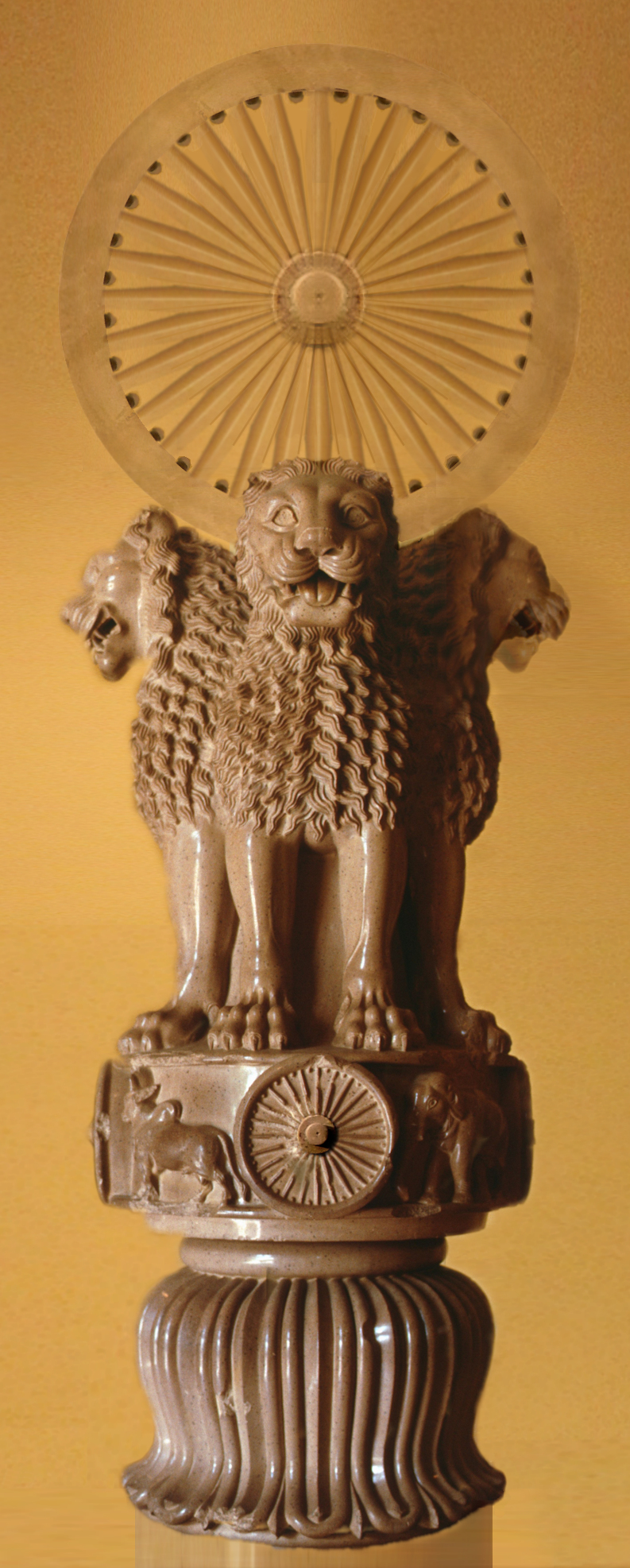 Real magic, as herebefore said, consists in the miraculous surplus of self-love. Stupid wizards cannot spell a damned thing more greatly than they can love; and, as far as they do not love themselves, their families, their neighbors at all, but covet them, covet the wealth of others, and excuse their wraths for stupid violence, thusly the bigoted morons show their hands too soon. They are impatient toddlers. They are unwilling to change, and are unwitting of curiosity. This backfires in maturity. At home, a parent cleans a mess and remakes a meal; but at war, a king cleans his saber (a pope, his scepter), hires a poor prostitute, sends some hundredfold more boys and girls off to the frontlines—their agony, somehow not more than a whisper on the margins of the dried ink of his parchment-strategies—while the real swords do the real work on the real battlefield. Is that then a difference of social classes, or of personal maturity?
Real magic, as herebefore said, consists in the miraculous surplus of self-love. Stupid wizards cannot spell a damned thing more greatly than they can love; and, as far as they do not love themselves, their families, their neighbors at all, but covet them, covet the wealth of others, and excuse their wraths for stupid violence, thusly the bigoted morons show their hands too soon. They are impatient toddlers. They are unwilling to change, and are unwitting of curiosity. This backfires in maturity. At home, a parent cleans a mess and remakes a meal; but at war, a king cleans his saber (a pope, his scepter), hires a poor prostitute, sends some hundredfold more boys and girls off to the frontlines—their agony, somehow not more than a whisper on the margins of the dried ink of his parchment-strategies—while the real swords do the real work on the real battlefield. Is that then a difference of social classes, or of personal maturity?
The American knows “racism.” The European knows “antisemitism.” Modi’s Hindustan knows “Islam.” Xi’s China knows “imperialism.” Putin’s Russia knows “whataboutism.” Evidently the wheel cannot end. However, the wheel can turn.
History is the wheel. Ideology is the turning. They coexist together. Cruel sinful persons like to stop the turning, hold the wheel, steel the motion, hoard the energy, and crush the wheel-turners underneath, so that their children do not want to think better. Heroes and leaders like to start the turning, push or pull the wheel, share the motion, love the energy, and manage the wheel so that nobody would be unduly hurt. They watch the wheel in order to direct its operation to societal ends, by personal ways, with individual means, for right costs, at right times, around the right risks.
 Cadres are those groups whose members misunderstand their time-and-place in any scale, scope, or setting. Whether siblings in a family, or contributors in a government, a cadre forms itself anywhere under the weighty human sins. In turn, a cabinet evolves out of a cadre. It evidences itself, as soon as those contributors make themselves just, free, equal leaders…real, deserving inspirations…grand contributors in other scales or other settings at the same time. Cadres are and become cabinets, whenever the members choose willingly daily to give up their votes on most (or all) questions, in order to pronounce elsewise the prerogatives of the commonly constructed consensus.
Cadres are those groups whose members misunderstand their time-and-place in any scale, scope, or setting. Whether siblings in a family, or contributors in a government, a cadre forms itself anywhere under the weighty human sins. In turn, a cabinet evolves out of a cadre. It evidences itself, as soon as those contributors make themselves just, free, equal leaders…real, deserving inspirations…grand contributors in other scales or other settings at the same time. Cadres are and become cabinets, whenever the members choose willingly daily to give up their votes on most (or all) questions, in order to pronounce elsewise the prerogatives of the commonly constructed consensus.
 This very consensus is hence the absolute Policy of a nation and the people’s government. [Das ist deren wesentliches Gesetz.] It enjoys many appearances, of course, yet always it is the dialectical truth-telling mirror which helps children experience adulthood, lets adults stay young, and points the lawtakers [Gesetznehmer] to the people’s social contract between ongoing history and profitable ideology [hinweisen]. Sovereignty does not mean that a cadre/cabinet could dictate, nor does rulemaking permit that the members were vertically or horizontally imposed commanders. Regulation and administration are the effects, not the causes…are not the phantasies, but indeed the realities of whichever lawgivers’ journals, presses, or cliques. Within the framework of this discussion is that surely evident, but outside such literary bounds does the real world not know those veracities. It is neither ‘street-smart’ nor ‘book-smart,’ as far as nobody on the streets or in the libraries could tell anybody in 2025 what sovereignty, rulemaking, regulation, administration should spell in tangible everyday senses [hindeuten]. They do not know. The words have lost themselves in civilization’s passage—except in the arbitrarily devilish, ironically self-destructive whimsies of the kings, popes, their acolytes and sycophants who play the part, reward the foul play, cheat the director, and hoard their petty crumbs while the others are slaughtered for idiotic ideas in foreign lands [Länder]. (This is the difference of sheep and shepherd.)
This very consensus is hence the absolute Policy of a nation and the people’s government. [Das ist deren wesentliches Gesetz.] It enjoys many appearances, of course, yet always it is the dialectical truth-telling mirror which helps children experience adulthood, lets adults stay young, and points the lawtakers [Gesetznehmer] to the people’s social contract between ongoing history and profitable ideology [hinweisen]. Sovereignty does not mean that a cadre/cabinet could dictate, nor does rulemaking permit that the members were vertically or horizontally imposed commanders. Regulation and administration are the effects, not the causes…are not the phantasies, but indeed the realities of whichever lawgivers’ journals, presses, or cliques. Within the framework of this discussion is that surely evident, but outside such literary bounds does the real world not know those veracities. It is neither ‘street-smart’ nor ‘book-smart,’ as far as nobody on the streets or in the libraries could tell anybody in 2025 what sovereignty, rulemaking, regulation, administration should spell in tangible everyday senses [hindeuten]. They do not know. The words have lost themselves in civilization’s passage—except in the arbitrarily devilish, ironically self-destructive whimsies of the kings, popes, their acolytes and sycophants who play the part, reward the foul play, cheat the director, and hoard their petty crumbs while the others are slaughtered for idiotic ideas in foreign lands [Länder]. (This is the difference of sheep and shepherd.)
The word consensus is not a cheap oneliner. Those children who speak Spanish, French, or other Latin-Roman languages, they know that the word originates in the Pope’s «consentir». The con means with; the sentir means feel, but empathically; and together the constituent halves produce a miraculous surplus, a third thing that is greater than the sum of its parts, which means thereby: «to feel so together with another person that you two work as one, in agreement, with accordance, by unanimity…as one voice in the time-and-place of an expertly conducted, extraordinarily composed choir.»
 Latin languages are equally rom- and Romantic for their atmospheres and in their contexts. Their children enjoy the throes of human passions, wield them so responsibly, and dare their chillier counterparts for the occasional parlay. They do not fear sins, but manage them. For this reason does the human world outside their Dasein know well the names of several German, Austrian, or Swiss heads-of-state, more so than it knows Gibraltar, Iberia, Franco, de Gaulle, Mattarella, or Salazar. Hereby comes zero moral judgement; the purpose is to reveal the magic-tricks of idiotic aristocrats. To wit:
Latin languages are equally rom- and Romantic for their atmospheres and in their contexts. Their children enjoy the throes of human passions, wield them so responsibly, and dare their chillier counterparts for the occasional parlay. They do not fear sins, but manage them. For this reason does the human world outside their Dasein know well the names of several German, Austrian, or Swiss heads-of-state, more so than it knows Gibraltar, Iberia, Franco, de Gaulle, Mattarella, or Salazar. Hereby comes zero moral judgement; the purpose is to reveal the magic-tricks of idiotic aristocrats. To wit:
1. What transforms all cadres to cabinets? The quality and flexibility of its grand management of the environmental consensus [i.e., the absolute Policy].
2. What sets all cabinets through? The wisdom to know the difference of ideology and history, plus the capacity and discipline to act upon the consequent intents.
The evolutionary key is not merely the cognizant personal realization, but is also the wholesome political policy, that the leaders-in-government should foreground everyone’s duties ahead of anyone’s powers. [Für immer muß Pflicht vor Macht kommen.] The differences in governments’ leaders comprise dialectical degrees, absolutely never disparate kinds. Like King Arthur has proven in character and in strength, anyone can put the key into the treasurechest of a people’s rightfully protected wealth, but only the esquires sufficiently brave to alchemize, wield, utilize the pen and sword can turn the key in order to trade that wealth. The German Konsens is here synonymous enough with the Anglican consensus. In finality, therefore, the cabinets of all governments shall unlock humanity’s rich spirits as long as its leaders and contributors should empathize altogether in themselves, each other, and the people without which their duties could not exist.
 [Los gobiernos alrededor del mundo siempre podrán liberar a los ricos espíritus de la humanidad con tal de que sus líderes y contribuyentes se sientan juntos con sí mismos, en los demás y hacia la gente y el pueblo, sin los cuales sus deberes no podrían nacer en ningún tiempo.]
[Los gobiernos alrededor del mundo siempre podrán liberar a los ricos espíritus de la humanidad con tal de que sus líderes y contribuyentes se sientan juntos con sí mismos, en los demás y hacia la gente y el pueblo, sin los cuales sus deberes no podrían nacer en ningún tiempo.]
The key is flexibility-of-perspective. The more rigid an ideology is, the sooner arrives the doom of its history. Survival is adaptation. Evolution is collaboration, coóperation, community, etc. It takes two to tango. The only thing that cannot be tolerated is intolerance. All peoples must appreciate well, shall resolve themselves through such paradoxes. The sword is double-edged, bilateral, bipartisan, bipedal, bisexual, etc.; but so is the pen at every time. Steel cuts as harshly as ink. Wartime is peacetime. Their difference is the active, dynamic, lively, living alignment of intentions and actions. Does a person want peace, or does a person want war? The devil gives anyone only what she requests. So does his better twin.
 Cabinets will be the centralized repositories of expertise, taste, education, skills, beauty, culture, etc., &c., like they always were since the time immemorial, because the Promethean fire needs always good air to inspire…or else it would burn out forever [verlöschen]. Even though Billy Joel said once that “we didn’t start the fire” (1989), his woe was unwelcome and unjustified. We want the fire. However, we don’t want the rude children who rob the s’mores, upturn the kitchentables, or throw such a tantrum that Jove would catch himself envious. Thus: the cadres hoard their recipes for withering ingredients, inasmuch that unmanaged sins consume themselves into dying oblivions; whereas the cabinets share those recipes through dutiful and deserving children, inasmuch that managed values uptrade, upgrade, update themselves into miraculous surplus-values. This pertains equally to the West and the East, to kings and popes…as much as administrators and lawtakers, politicians and lawgivers, rulemakers and regulators, sovereignty and procedure, substance and effect, law and equity, statute and right…policies and consensus, critics and chefs…departments and chancellors.
Cabinets will be the centralized repositories of expertise, taste, education, skills, beauty, culture, etc., &c., like they always were since the time immemorial, because the Promethean fire needs always good air to inspire…or else it would burn out forever [verlöschen]. Even though Billy Joel said once that “we didn’t start the fire” (1989), his woe was unwelcome and unjustified. We want the fire. However, we don’t want the rude children who rob the s’mores, upturn the kitchentables, or throw such a tantrum that Jove would catch himself envious. Thus: the cadres hoard their recipes for withering ingredients, inasmuch that unmanaged sins consume themselves into dying oblivions; whereas the cabinets share those recipes through dutiful and deserving children, inasmuch that managed values uptrade, upgrade, update themselves into miraculous surplus-values. This pertains equally to the West and the East, to kings and popes…as much as administrators and lawtakers, politicians and lawgivers, rulemakers and regulators, sovereignty and procedure, substance and effect, law and equity, statute and right…policies and consensus, critics and chefs…departments and chancellors.
Chancellor
In the Republic of Silofais does the Constellan enjoy such office vis-à-vis the national head-of-state [Staatsspitze, -chef; Volkslehrer, -leiter]. For the first time in recorded human history, actually, this office is constitutionally and legally separated from the Cabinet. The position contraposes itself against the Chancellor, which office wields what a lazy head-of-state wants often to covet. Exactly for such reason must their duties be sundered, then alchemized. In the Americas, because of George Washington (1788) and Simón Bolívar (1830), many governments predicate an “executive branch” – a cabinet, or a cadre – whose ministers could appoint anybody, could advise everyone, and could take neither absolute nor relative responsibility for themselves in any circumstance. “Once elected,” the ideology ideates, “the president and the cabinet shall be limitless throughout their executive lanes.” Meanwhile nobody wants to understand the important distinction of courtrooms, legislatures, cabinets, or heads-of-state, because everybody would have to wake themselves up from the post-WWII hangover.
 The cart needs a rider, here, the Constellan. It needs also a horse, here, the Chancellor. They are coequals, like the coconsuls of Rome, or the coprinces of Andorra and San Marino. That is not to be found in the Americas, though, nor in Europe or in the East. The Prime Minister of Great Britain and Northern Ireland is today a de-facto dictator over Parliament, Cabinet, and Privy Council—a disgusting faux-pas of a thus allegedly enlightened society. The Presidents of Germany, Austria; the Kings of Sweden, the Netherlands; the Presidents of Russia, North Korea, China, South Korea, Vietnam; the Kings of Saudi Arabia, Venezuela, Montgomery, and Little Rock; the executive canton-council of the o-famous Swiss oathfraternity [der schweizerischen Eidgenossenschaft]; and so many more “leaders” circa 2025, they are all accountable only to two sides, first to their party-whips, and afterwards maybe to the judges of an “independent” judiciary. That does not include the people, their futures, or their beliefs. Thence even the layperson beholds that, whenever the party-whip becomes the rider, the judges become so too frequently a “dispassionate” horse which lets the cart run off to the wrong paths, the false confluences, the sinful fruits of deceitful idiots.
The cart needs a rider, here, the Constellan. It needs also a horse, here, the Chancellor. They are coequals, like the coconsuls of Rome, or the coprinces of Andorra and San Marino. That is not to be found in the Americas, though, nor in Europe or in the East. The Prime Minister of Great Britain and Northern Ireland is today a de-facto dictator over Parliament, Cabinet, and Privy Council—a disgusting faux-pas of a thus allegedly enlightened society. The Presidents of Germany, Austria; the Kings of Sweden, the Netherlands; the Presidents of Russia, North Korea, China, South Korea, Vietnam; the Kings of Saudi Arabia, Venezuela, Montgomery, and Little Rock; the executive canton-council of the o-famous Swiss oathfraternity [der schweizerischen Eidgenossenschaft]; and so many more “leaders” circa 2025, they are all accountable only to two sides, first to their party-whips, and afterwards maybe to the judges of an “independent” judiciary. That does not include the people, their futures, or their beliefs. Thence even the layperson beholds that, whenever the party-whip becomes the rider, the judges become so too frequently a “dispassionate” horse which lets the cart run off to the wrong paths, the false confluences, the sinful fruits of deceitful idiots.
For a case-in-point: because in Silofais popular means really parliamentary, so the sovereign head-of-state does not oversee executive administrations; the journalists do not control executive budgets; and the chaplain, judge, or clerk do not regulate executive decisionmaking. The rider and the horse must not become codependent, must be ever only coconsenting, cocreating, coexisting; or else the cart should result in a fatal, unfortunate, avoidable insurance-claim on the moral debts of someone’s deal-with-the-devil. (Frequently those are humanity’s vampires, a.k.a., the aristocrats and plutocrats.) In order that their deals be never underwritten by a people’s government, the Constellan and the Chancellor must become fruitful and joyous teammates, but not once spiteful spouses. The bilateral bureaus, their entourages, their appointees, their advisees, etc., must know what their duties are not, so that the people and the government could know what their duties are.
 The Chancellor is undoubtedly the head-of-government [Regierungschef, -spitze; Volksführer, -verwalter]. This officer is the captain’s and the crew’s quartermaster. The individual writes, the person rules, and the society reigns, so that the quartermaster should keep a more profitable voyage while the captain would watch the seas, the crew, and the directions of their common ways. The Chancellor in the Republic of Silofais is so the ultimate rulemaker, the grandest administrator in the executive affairs of laws, statutes, rights, and policies. Whereas the Constellan’s bureau is uniquely especially ephemeral, albeit absolute, then the Chancellor’s bureau is commonly consensually consistent, yet relative. This officer is utterly primus inter pares…the first among equals. This person works steadfastly with the Cabinet, whilever the departments busy themselves elsewhere, and whilever the Constellan itinerates among the national lands, boroughs, outposts, castles, borders, etc. The lawgivers demand/warrant such a chief executive officer as this Chancellor [erfordern]—so much as the captain, the chaplain, the crew, and the lieutenants deserve/earn the security of a warm hearth, good company, fair conversation, and accountable entertainment. Therefore: no matter the sex or gender or ideology or history or opinions or faiths, the chief secretary of the people’s cabinet shall serve a critics-loved meal, or should be removed forthwith for lacking obviously the adults’, as much as the children’s popular and parliamentary confidences.
The Chancellor is undoubtedly the head-of-government [Regierungschef, -spitze; Volksführer, -verwalter]. This officer is the captain’s and the crew’s quartermaster. The individual writes, the person rules, and the society reigns, so that the quartermaster should keep a more profitable voyage while the captain would watch the seas, the crew, and the directions of their common ways. The Chancellor in the Republic of Silofais is so the ultimate rulemaker, the grandest administrator in the executive affairs of laws, statutes, rights, and policies. Whereas the Constellan’s bureau is uniquely especially ephemeral, albeit absolute, then the Chancellor’s bureau is commonly consensually consistent, yet relative. This officer is utterly primus inter pares…the first among equals. This person works steadfastly with the Cabinet, whilever the departments busy themselves elsewhere, and whilever the Constellan itinerates among the national lands, boroughs, outposts, castles, borders, etc. The lawgivers demand/warrant such a chief executive officer as this Chancellor [erfordern]—so much as the captain, the chaplain, the crew, and the lieutenants deserve/earn the security of a warm hearth, good company, fair conversation, and accountable entertainment. Therefore: no matter the sex or gender or ideology or history or opinions or faiths, the chief secretary of the people’s cabinet shall serve a critics-loved meal, or should be removed forthwith for lacking obviously the adults’, as much as the children’s popular and parliamentary confidences.
The name is the job. The Chancellor is the top-chef; the secretaries are the vice-chefs; the deputy-secretaries are the sous-chefs; and the assistant-secretaries are the staff-chefs [les communards]. The cookers may enjoy therethrough incredible and awful duties to feed a needy, hungry population under a much other-ado captain [dürfen; poder]. They earn thus equally awesome powers, provided that those powers should stay deeply ephemeral, i.e., truly and historically dependent on the critics’ confidences. As soon as the tables’ people cannot request new meals, novel tastes, revolutionary menus, upgraded options – and especially if that were so because the chefs have locked themselves in the kitchen – then the hungry mouths are justified to upturn the wheel of mutiny, to sack the chefs [entlassen], and to reappoint much better leaders & contributors. (Naturally does the captain overlook most of all such commotions, because someone must protect the home’s walls and foundations anyways.)
 It is okay that the tables subdivide for ideological blocs, distinct cliques, partisan politics, occasional squabbling, childish finger-pointing, and the like. The great captains and quartermasters know that their crews need their proper social outlets. Whenever someone wants to leave, throw a tantrum, or regress of age, nobody has to abuse physical violence or antisocial brainwashing or propaganda. The someone can exit the stage. They could start a new kitchen, after they find a new captain and a happy crew. They could compete now fairly, ethically, openly—instead of cruel ironic vampirism. The differentiated rivalry can be mutually beneficial; it must not always be an arena whose combatants abuse their jealous wraths. (Self-love is ever ironic, after all.) The Cabinet in the Republic of Silofais remains indeed the trilateral and evolutionary arena where the contributors earn their leaderships, the leaders bestow their legacies, and the judges and juries substantiate the people’s due political processes.
It is okay that the tables subdivide for ideological blocs, distinct cliques, partisan politics, occasional squabbling, childish finger-pointing, and the like. The great captains and quartermasters know that their crews need their proper social outlets. Whenever someone wants to leave, throw a tantrum, or regress of age, nobody has to abuse physical violence or antisocial brainwashing or propaganda. The someone can exit the stage. They could start a new kitchen, after they find a new captain and a happy crew. They could compete now fairly, ethically, openly—instead of cruel ironic vampirism. The differentiated rivalry can be mutually beneficial; it must not always be an arena whose combatants abuse their jealous wraths. (Self-love is ever ironic, after all.) The Cabinet in the Republic of Silofais remains indeed the trilateral and evolutionary arena where the contributors earn their leaderships, the leaders bestow their legacies, and the judges and juries substantiate the people’s due political processes.
 That is only partially a metaphor, as far as the Silofaisan judges do not sit in, but advise the policymaking committees regularly [i.e., the various cabinetary meetings]. More broadly, necessarily, the judges’ writs and opinions are meaningless without the written/substantive ministers, who are there the dialectical opposites of the magistrates’ own spoken/procedural works [Werke]. This is to say, the executive ministers are not judicial arbiters, nor lawgivers, nor strategists. They are the technical experts, experienced teachers, learnéd doctors, and skilled entrepreneurs from out the population’s latent wisdoms. The Cabinet is a convenient ideological constitutional framework, but it functions yet only to the extent that the Chancellor’s rulemakers and their departments’ subordinated regulators do not confuse framework for officework. Ideologies do not make history; in a certain sense is every ideology actually a part of history. Every idea is, was, can be merely a certain biased perspective around actual material truths. The Chancellor promulgates so the National Policy in coóperative conjunction with the Cabinet, in order to maintain parliamentary Confidence of the Delegates, and to deserve year-over-year parliamentary Supply for their submitted budget(s) [vis-à-vis Australia, Canada, Italy]. Their mutual, official, general program & its component portfolios shall constitute together the sociopolitical contract whereto they are held commonly accountable.
That is only partially a metaphor, as far as the Silofaisan judges do not sit in, but advise the policymaking committees regularly [i.e., the various cabinetary meetings]. More broadly, necessarily, the judges’ writs and opinions are meaningless without the written/substantive ministers, who are there the dialectical opposites of the magistrates’ own spoken/procedural works [Werke]. This is to say, the executive ministers are not judicial arbiters, nor lawgivers, nor strategists. They are the technical experts, experienced teachers, learnéd doctors, and skilled entrepreneurs from out the population’s latent wisdoms. The Cabinet is a convenient ideological constitutional framework, but it functions yet only to the extent that the Chancellor’s rulemakers and their departments’ subordinated regulators do not confuse framework for officework. Ideologies do not make history; in a certain sense is every ideology actually a part of history. Every idea is, was, can be merely a certain biased perspective around actual material truths. The Chancellor promulgates so the National Policy in coóperative conjunction with the Cabinet, in order to maintain parliamentary Confidence of the Delegates, and to deserve year-over-year parliamentary Supply for their submitted budget(s) [vis-à-vis Australia, Canada, Italy]. Their mutual, official, general program & its component portfolios shall constitute together the sociopolitical contract whereto they are held commonly accountable.
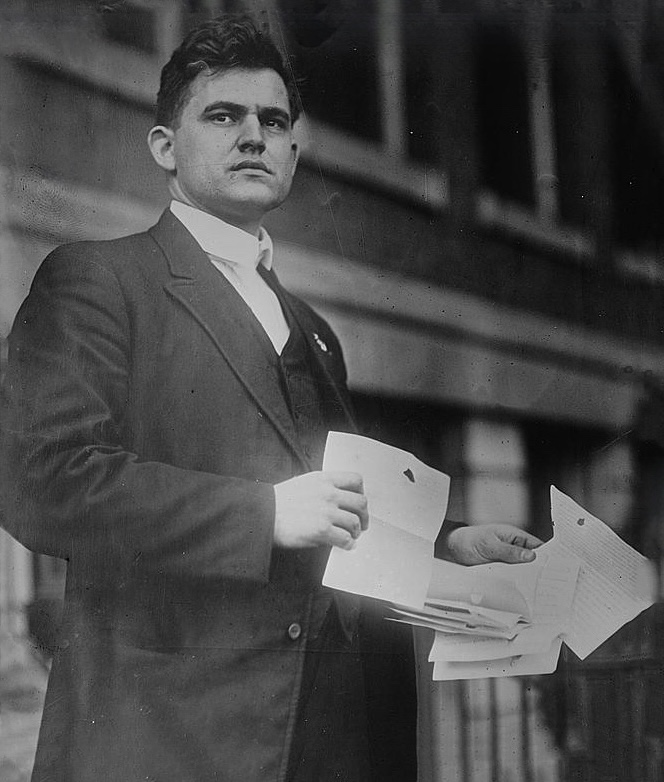 The Silofaisan Chancellor is unique for many reasons, but the most prominent is the official control of taxes, costs, management, and tactics. In this Republic do the legislators not hold the “power of the purse,” but have forsaken it – uptraded it – with the Cabinet as a whole. The “executive branch” works along an ascending order of good company [werken]. The Constellan appoints the Chancellor at will. The latter appoints the Cabinet’s remainder alone, and may remove them at will. Each of them is a network-node along a national decision-tree, which starts at the lawtaking and ends at the law-counselling. Like entrepreneurial businesspeople, the ministers shall raise public taxes under freely set market-prices; shall appropriate political costs under good policies and personal time-and-place; and shall extend this credit-and-faith to those whom, with accordance to the cascading confluences of written Policies and Laws, of spoken Equity and Justice, they should deem fit of appointment [trust; vertrauen; confiar]. Also like entrepreneurs, of course, the ballot of the free market – here, the ballot of the people’s voices and their consequent outcomes upon politicians’ votes – shall punish them swiftly for acting like (bad) children. Partisan politics cuts both ways, like the sword and the pen. Before great powers do always greater duties arrive. Subsequently it is a better executive system that the law-enforcement officers, the administrative regulators, etc., should have no longer the means to abuse the legislators for more excuses about bad government, and instead, should bear the heavier burden to render a grand service under harsh public scrutiny.
The Silofaisan Chancellor is unique for many reasons, but the most prominent is the official control of taxes, costs, management, and tactics. In this Republic do the legislators not hold the “power of the purse,” but have forsaken it – uptraded it – with the Cabinet as a whole. The “executive branch” works along an ascending order of good company [werken]. The Constellan appoints the Chancellor at will. The latter appoints the Cabinet’s remainder alone, and may remove them at will. Each of them is a network-node along a national decision-tree, which starts at the lawtaking and ends at the law-counselling. Like entrepreneurial businesspeople, the ministers shall raise public taxes under freely set market-prices; shall appropriate political costs under good policies and personal time-and-place; and shall extend this credit-and-faith to those whom, with accordance to the cascading confluences of written Policies and Laws, of spoken Equity and Justice, they should deem fit of appointment [trust; vertrauen; confiar]. Also like entrepreneurs, of course, the ballot of the free market – here, the ballot of the people’s voices and their consequent outcomes upon politicians’ votes – shall punish them swiftly for acting like (bad) children. Partisan politics cuts both ways, like the sword and the pen. Before great powers do always greater duties arrive. Subsequently it is a better executive system that the law-enforcement officers, the administrative regulators, etc., should have no longer the means to abuse the legislators for more excuses about bad government, and instead, should bear the heavier burden to render a grand service under harsh public scrutiny.
 Uniquely, constitutionally, the Constellan cannot remove the Chancellor. It sets up a particular game vis-à-vis Gaullian semipresidentialism (1958). The former can appoint whomever s/he pleases, but after the appointment, s/he would be glued to that quartermaster like a hopeful hostage. In turn, the latter enjoys an indefinite term; wields the relatively absolute power to command the Cabinet and its secretaries unto the National Policy; and cannot be removed, except by his/her own resignation, an impeachment, the underworld, or – last but most importantly – the common sense to step out of a coming tsunami. For example, even when s/he resigns the office and the Cabinet is swept off the table for an entirely blank slate of officers, even in this case, none of them are discharged until a new Chancellor becomes installed (not merely appointed). Thus: the captain appoints, the quartermaster advises, and the lawgivers man the masts on the national maritime ship, in order to align parties and politics, philosophy and politology, governments and hermeneutics…commissions and warrants…letters patent and credited…organic popular reforms via good ideas, which capable leaders should write and wreak, in order to catalyze a coined consensus along the chaotic civilizatory confluences in the arenas of commerce, culture, and combat.
Uniquely, constitutionally, the Constellan cannot remove the Chancellor. It sets up a particular game vis-à-vis Gaullian semipresidentialism (1958). The former can appoint whomever s/he pleases, but after the appointment, s/he would be glued to that quartermaster like a hopeful hostage. In turn, the latter enjoys an indefinite term; wields the relatively absolute power to command the Cabinet and its secretaries unto the National Policy; and cannot be removed, except by his/her own resignation, an impeachment, the underworld, or – last but most importantly – the common sense to step out of a coming tsunami. For example, even when s/he resigns the office and the Cabinet is swept off the table for an entirely blank slate of officers, even in this case, none of them are discharged until a new Chancellor becomes installed (not merely appointed). Thus: the captain appoints, the quartermaster advises, and the lawgivers man the masts on the national maritime ship, in order to align parties and politics, philosophy and politology, governments and hermeneutics…commissions and warrants…letters patent and credited…organic popular reforms via good ideas, which capable leaders should write and wreak, in order to catalyze a coined consensus along the chaotic civilizatory confluences in the arenas of commerce, culture, and combat.
 It is true that none can control these movements; but with grace, humility, and a happy ethos could they sublate consumptive sins for self-perpetuating wealth. They have simply to put their money where their mouth is. As the ante and the stakes are raised highly, so the rewards and the risks will pay out only better dividends…as long as the trade-chains of resourceful diversity turn over the evolutionary key for grand management…for miraculous economic surplus-values.
It is true that none can control these movements; but with grace, humility, and a happy ethos could they sublate consumptive sins for self-perpetuating wealth. They have simply to put their money where their mouth is. As the ante and the stakes are raised highly, so the rewards and the risks will pay out only better dividends…as long as the trade-chains of resourceful diversity turn over the evolutionary key for grand management…for miraculous economic surplus-values.
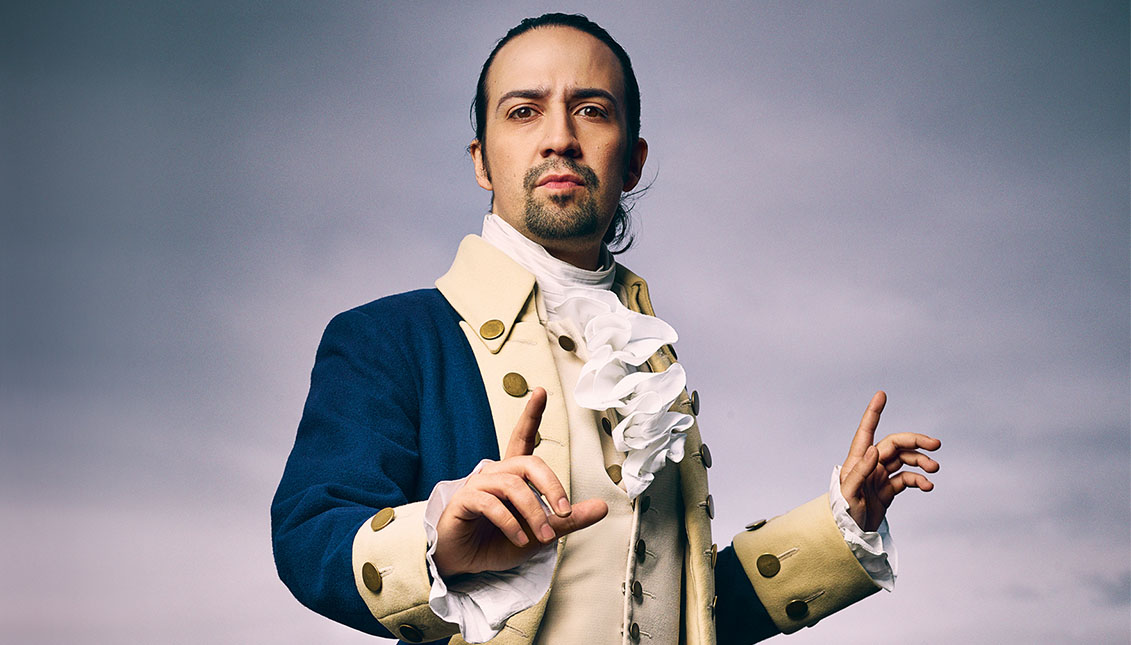 May the church rule. May the state reign. May their constitution lead a more profitable voyage than could the quartermaster have rendered without the captain—or the captain without the crew—or any of them without the honest and truth-telling chaplain. The hands will not hold the chains, nor should the sword break them. Instead their works could become human history with the delicate wings of republican liberty. May the surrounding forests, their fruits, and their horses bear so humanity’s due (but always earned) prosperous joys. May the treasure befind so its entrepreneurial pirates, that they may honor the serendipity of human life—not only in actions, but also in intentions.
May the church rule. May the state reign. May their constitution lead a more profitable voyage than could the quartermaster have rendered without the captain—or the captain without the crew—or any of them without the honest and truth-telling chaplain. The hands will not hold the chains, nor should the sword break them. Instead their works could become human history with the delicate wings of republican liberty. May the surrounding forests, their fruits, and their horses bear so humanity’s due (but always earned) prosperous joys. May the treasure befind so its entrepreneurial pirates, that they may honor the serendipity of human life—not only in actions, but also in intentions.
Diversity is power. Discipline is love. Pflicht = Spaltung. Ehre = Macht. It depends all simply on the context of one’s ideology at a given time-and-place.
